During our stay in McCarthy, we ventured into Wrangell-St. Elias National Park twice, once to explore the town of Kennecott and once to walk on Root Glacier. In order to get to the town of Kennecott, we took a van crammed full of people up a 5 mile dirt road. Luka thought it was a good idea to point and scream “long day, suckas!” to everyone on board. That’s his way of saying “see you later, suckers!”. Which, btw, I have NO IDEA how he learned that phrase. I’m sure he wouldn’t have repeated it a million times if it wasn’t for all the giggles.
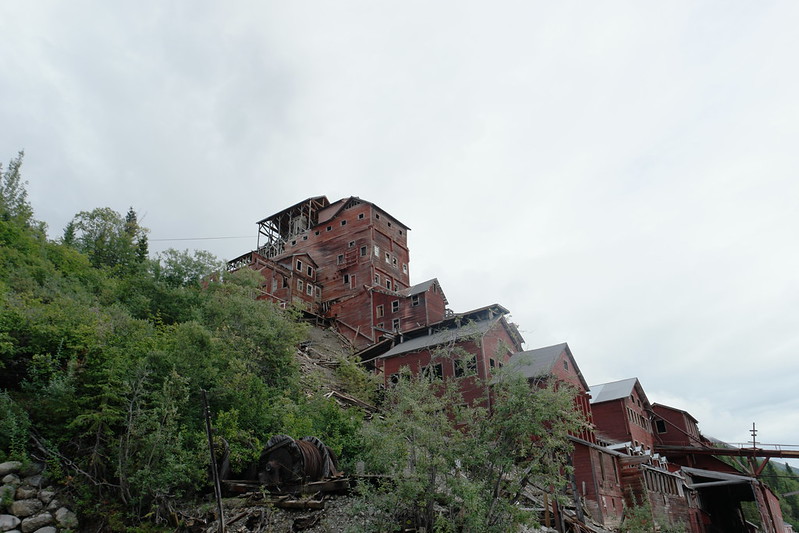
Kennecott Concentration Mill Building. This 14-story structure is the tallest wooden structure in North America. It’s the centerpiece to one of the richest copper mines ever in the world. More than $200,000,000 (in 1930s value. It would be in the billions today.) worth of copper was mined in the region and processed here. Its extreme remote location required a 200-mile railroad to be built across Alaska’s rugged landscape to exclusively service the mine. For the first few years before the railroad, equipment was brought in by dog sleds in the cold Alaskan winter. That railroad is now used as the 60-mile dirt road that connects Chitina to McCarthy. The mine even produced enough silver over 30 years of operations as a byproduct to more than pay for all of the infrastructure needed for copper mining. We took a guided tour of the inside and will be sharing a few more photos of our experience with you.
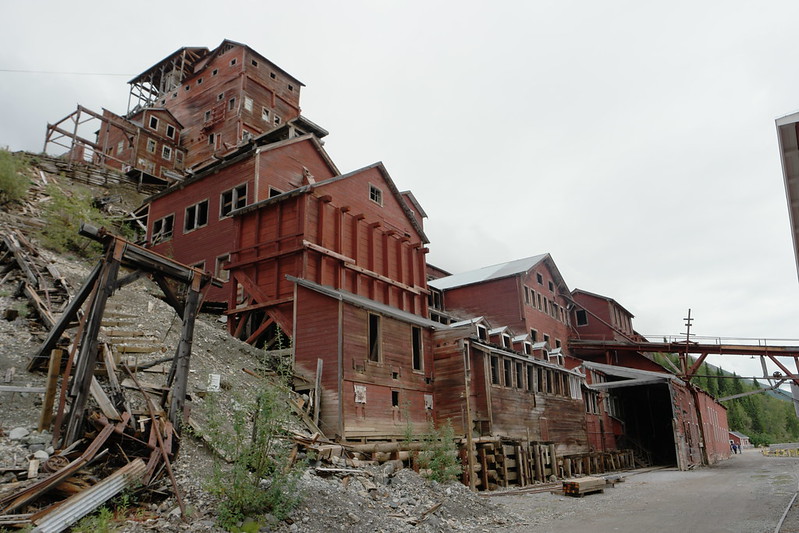
Our mill tour started in town with a guide explaining this and that. I can’t remember the details. You can find out more on Dan’s vlog.
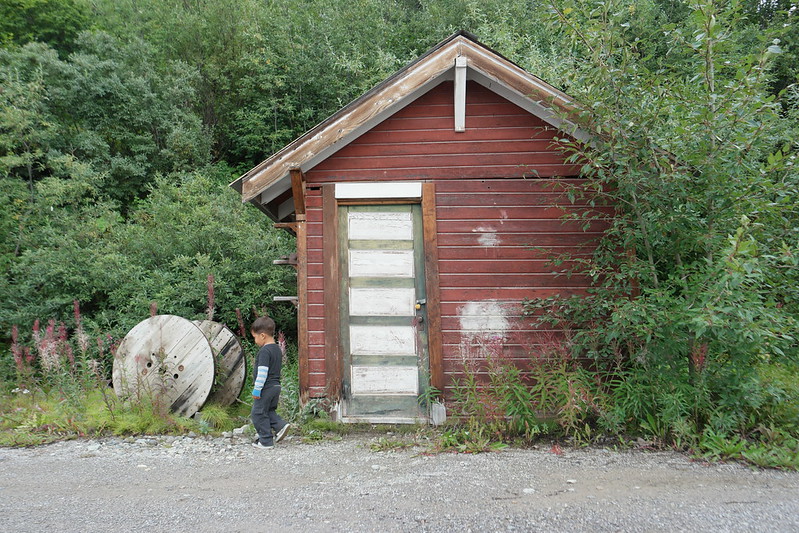
Oh oh. This is not a good start of our multiple hour tour.
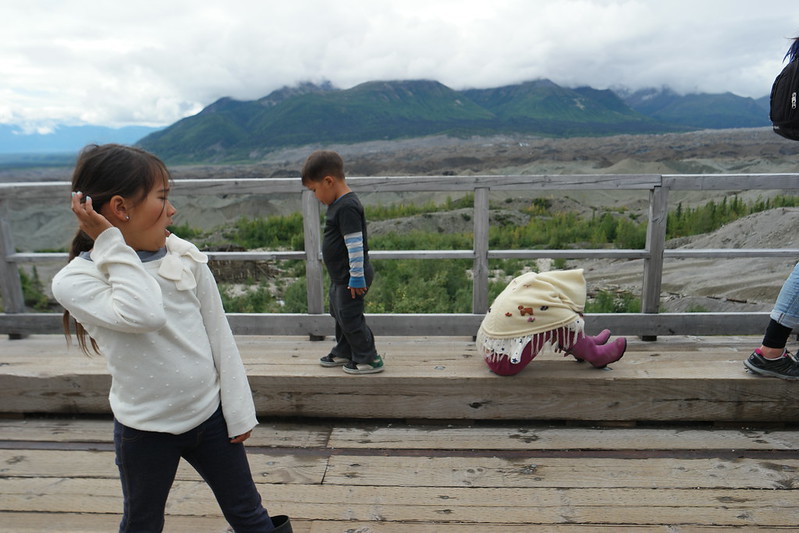
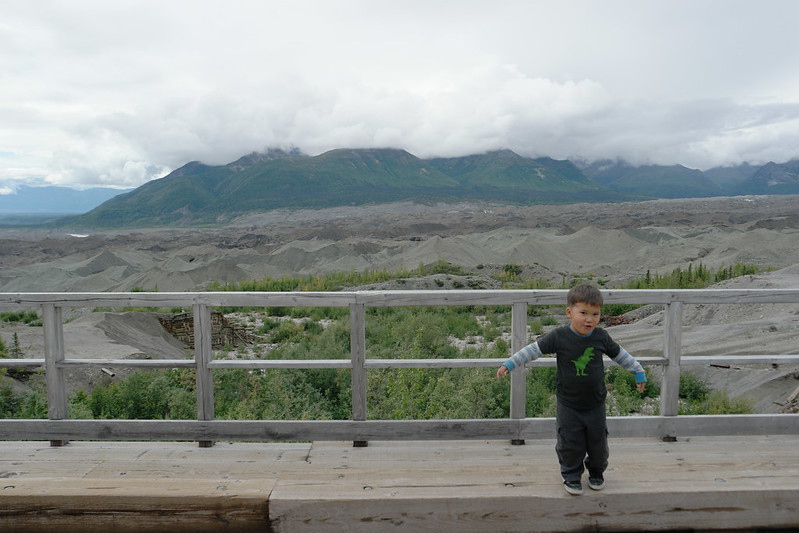
Some of the buildings in town were still standing, some were being restored and some sat in a collapsed pile on the ground. It was amazing to see a town like this preserved so well. The cold weather of Alaska and lack of fire really benefited this place. It’s hard to find so many originals like this in the Old West.
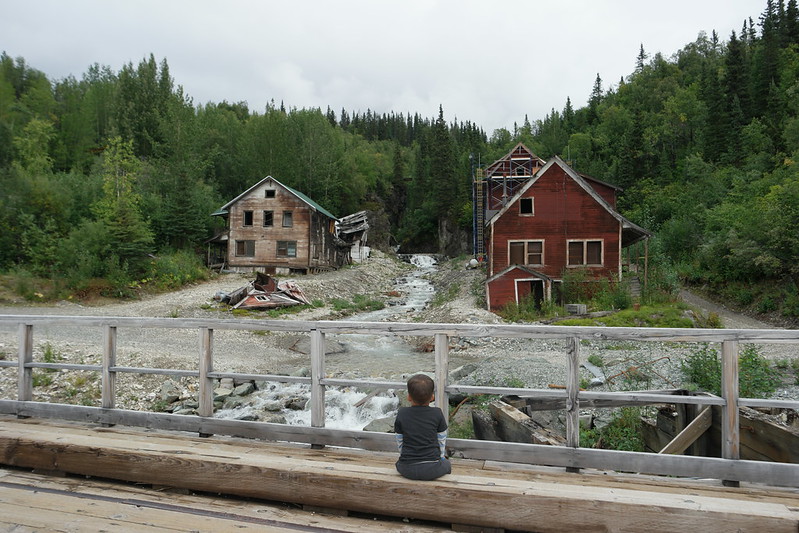
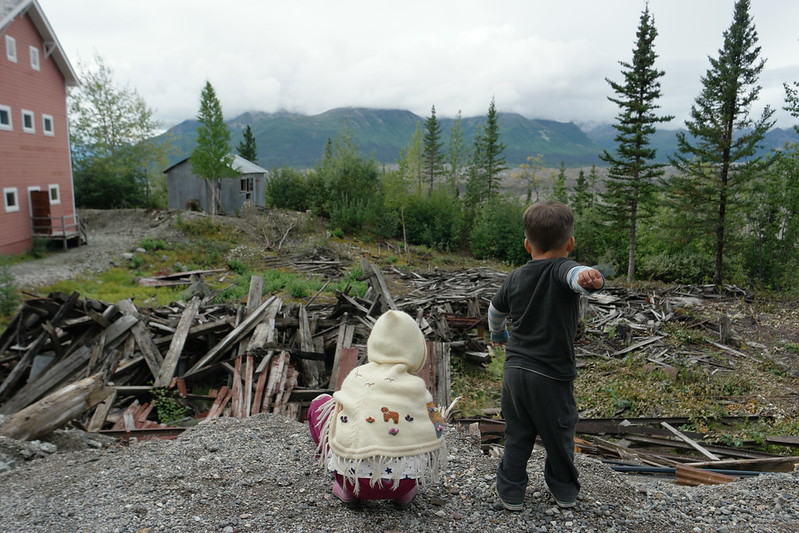
Kennecott, Alaska was named after the glacier that flows right up against the mountain side where the mine was built. In a clerical error, Kennicott was misspelled as Kennecott so that is what the town and mine became known by. The smoke stacks coming out of the building at the north end of town is the power house. It generated electricity and steam that made Kennecott ‘as nice of a place to live as New York City’ at the turn of the 20th century.
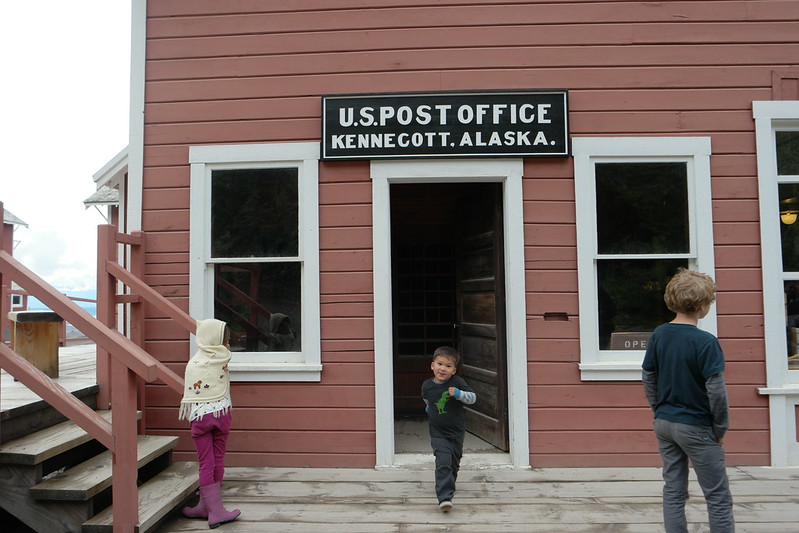
On our way to the mill, we made our way to one of the main offices in town. It was amazing to see the height of the glacier in the old photos and compare them to present day. Those piles of dirt in the photo are the glacier trailing.
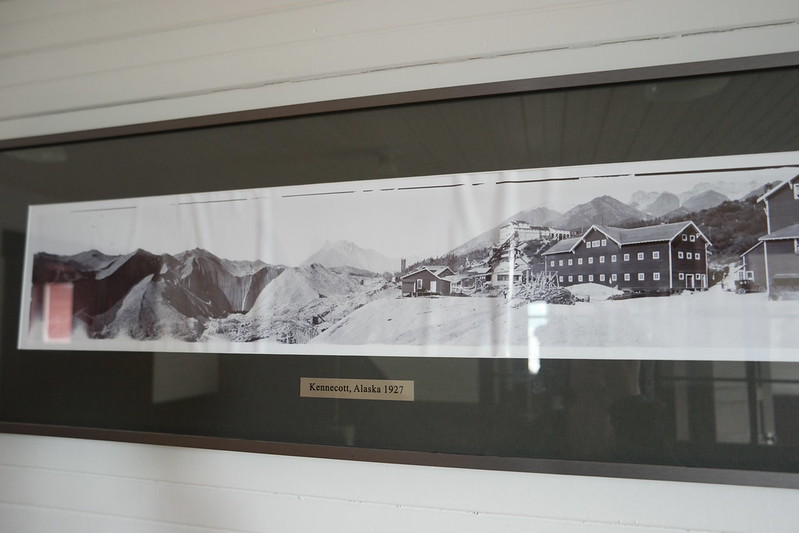
Our 3 year old Luka as not about to stand still and listen to the history of the town so we walked off and kindly stood in some good light for a photo shoot.
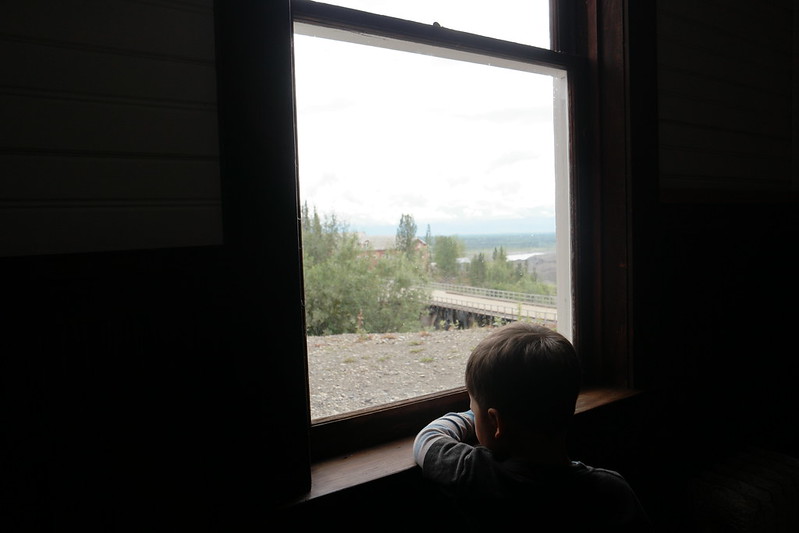
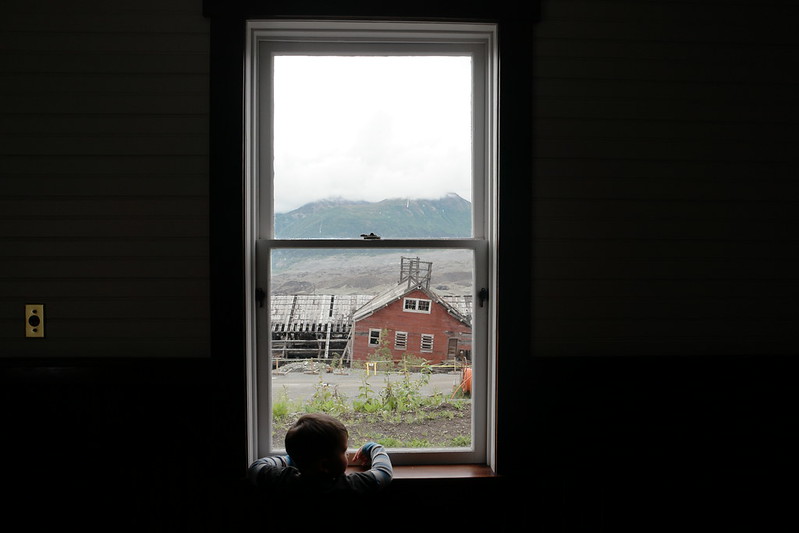
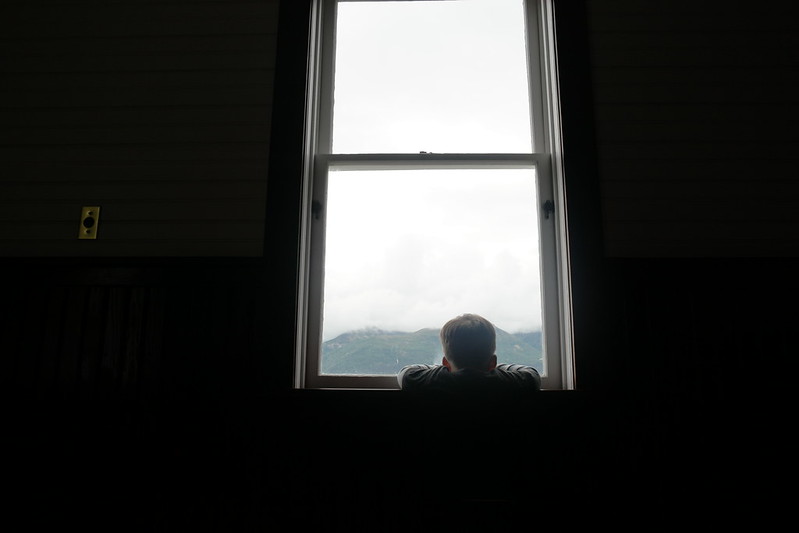
Are they done talking yet, Mama?
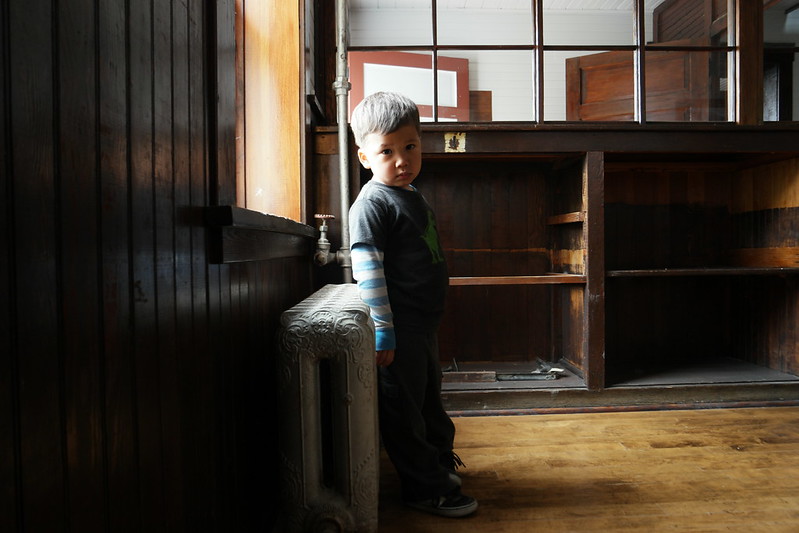
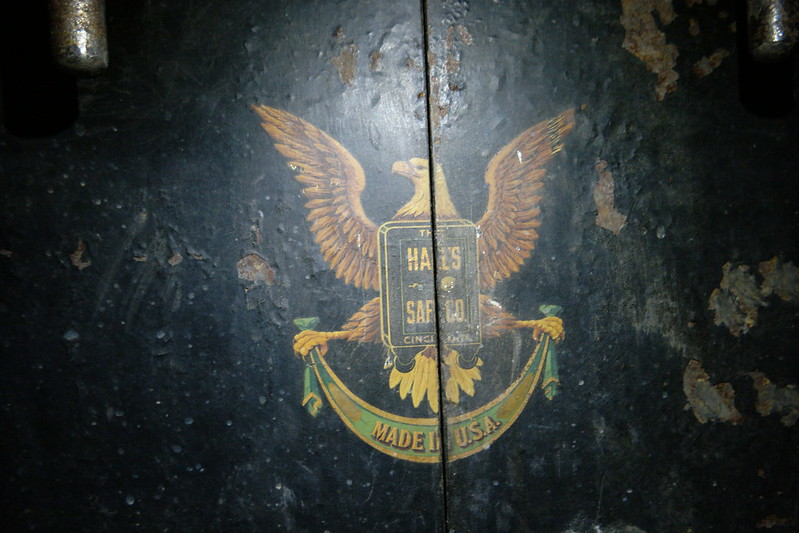
The top of the Mill Building is 14 stories up so that means a hike up the hill for the crew.
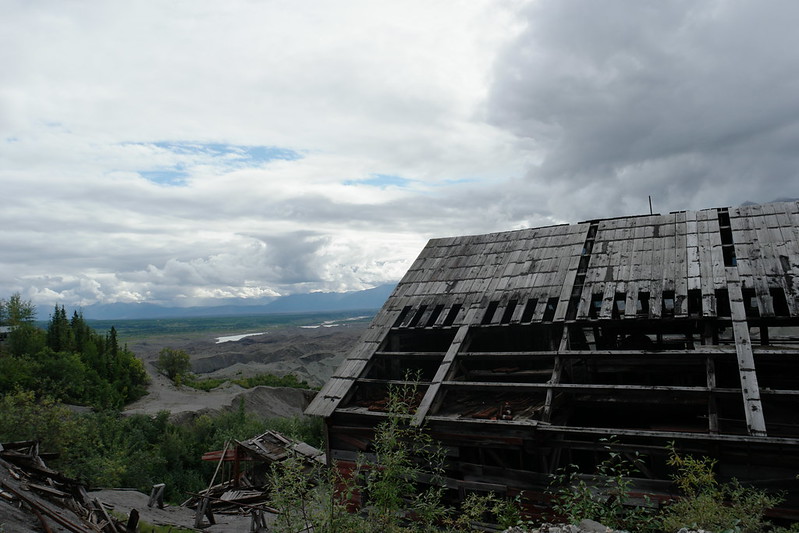
This is the entrance to the building. So rickety looking. So not safe looking.
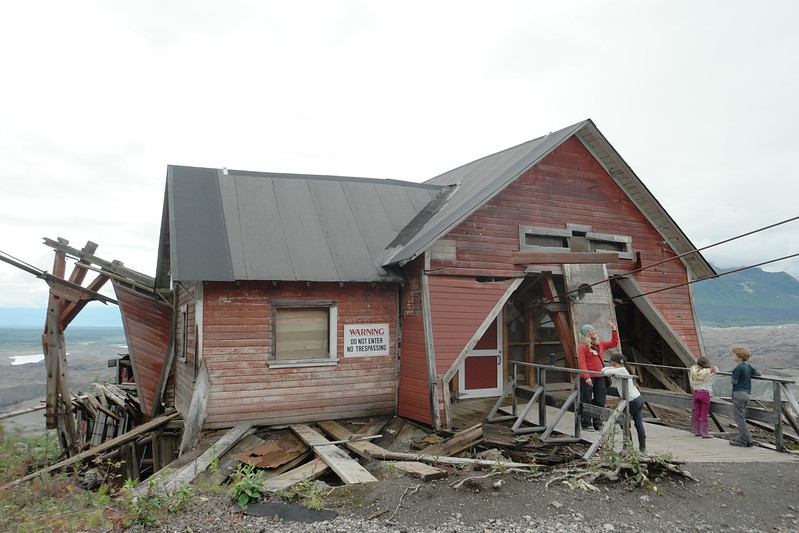
This is what you cross once you get passed the front door. So rickety!
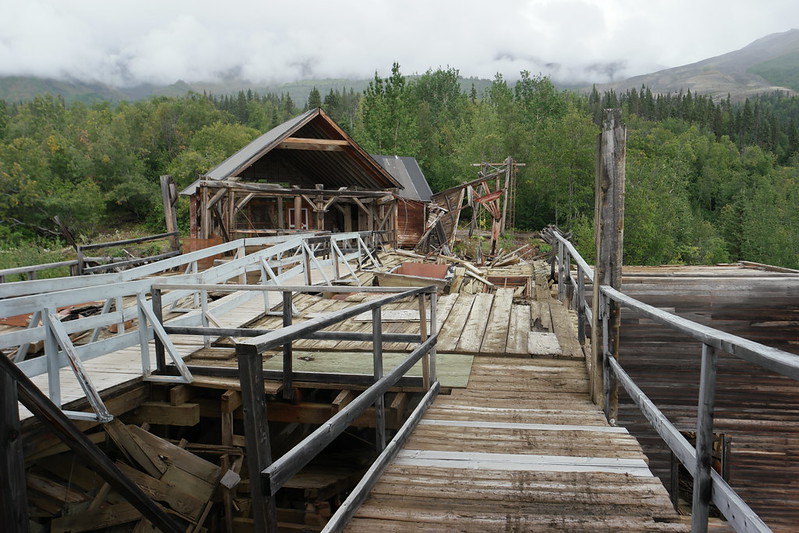
But the views from up top are amazing.
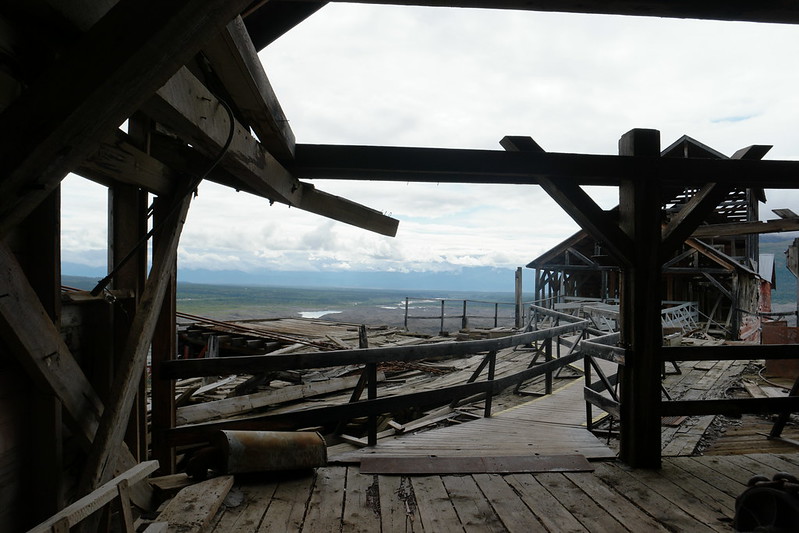
And on the plus side, they gave us hard hats so we are TOTALLY safe.
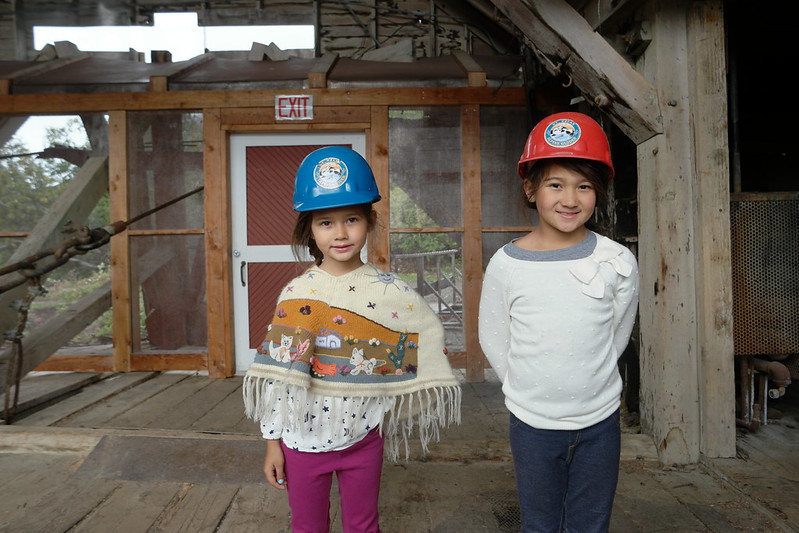
And yeah, there was no way I was letting Luka walk on the tour of this building. ErgoBaby Carrier to rescue for the 13,459th time. Yay!
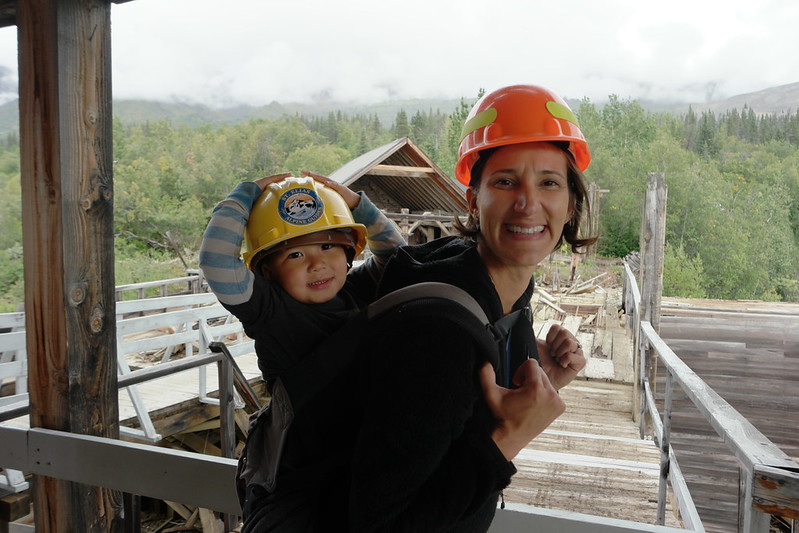
OK, let’s do this!
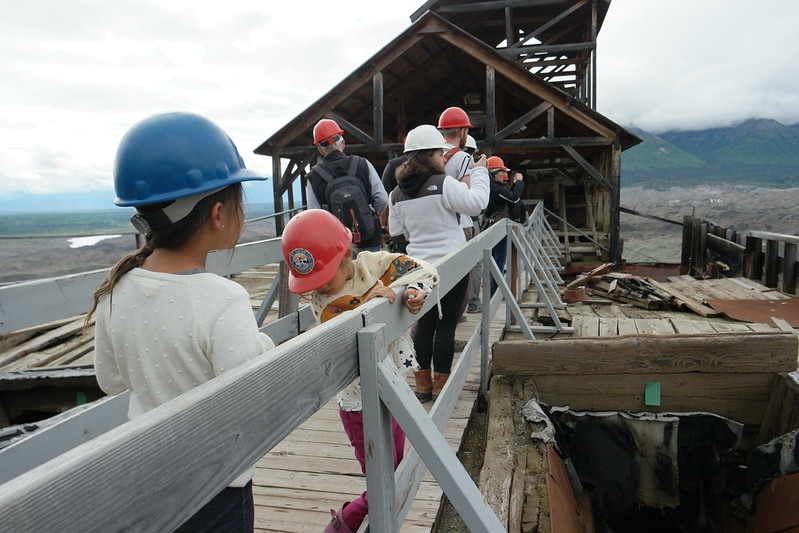
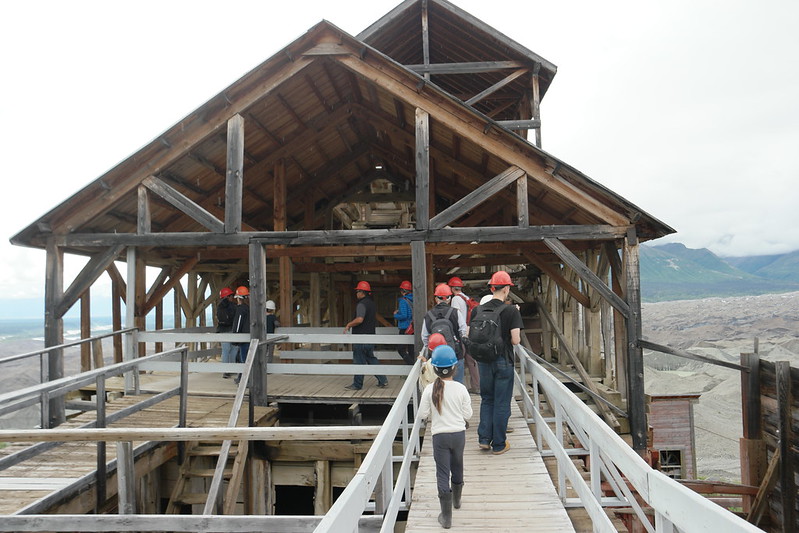
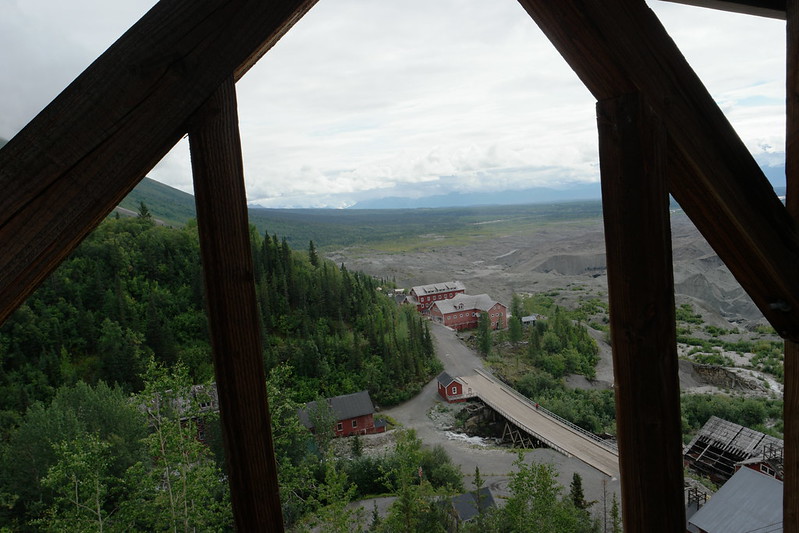
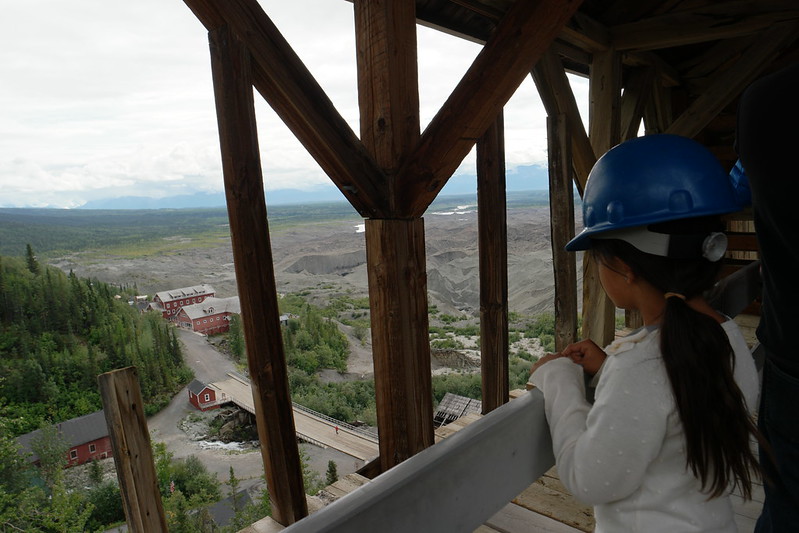
Like many places in the Alaskan wilderness, structures are built and rebuilt as needed. Much of the equipment used for rock crushing in the Kennecott Mine’s mill building was used until it could no longer run and left in place while a replacement was installed in a nearby location. Uninstalling and removing heavy equipment is often impractical and not cost effective. These practices gave this building its character today. Lots of redundancy and duplicity is visible at every turn. Steep stairs took workers from one platform to another and if a door or window was needed, a hole was cut out of a wall to make it.
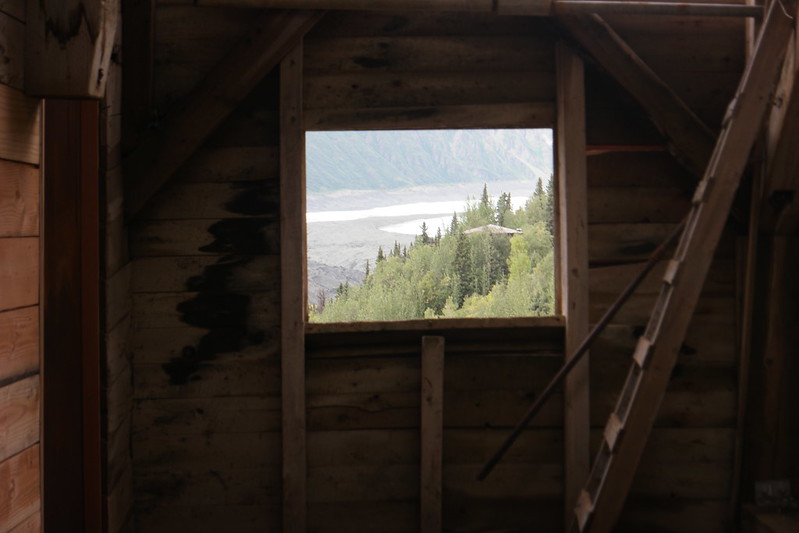
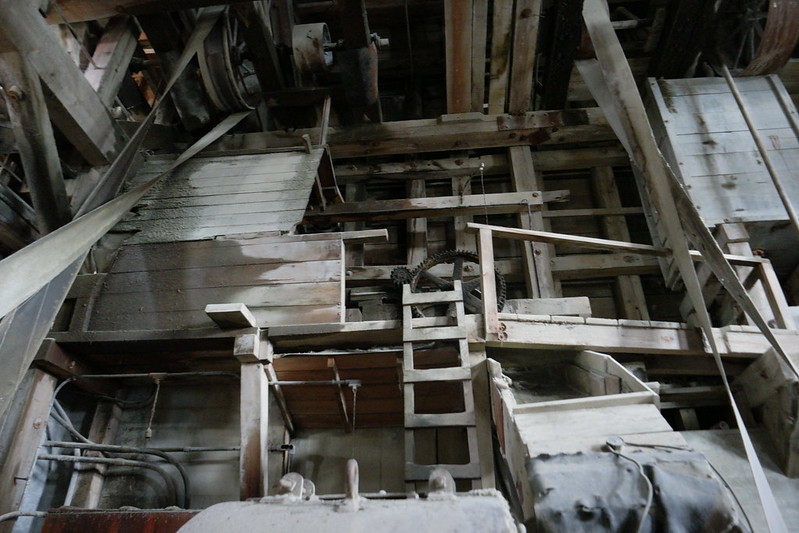
I love old buildings and ghost towns. We try to visit as many as we can during our travels. But being 14 stories up, wooden beams randomly nailed everywhere was a bit spooky at times. The National Park Service reinforced the entire building to keep it from collapsing…. but still. A little spooky.
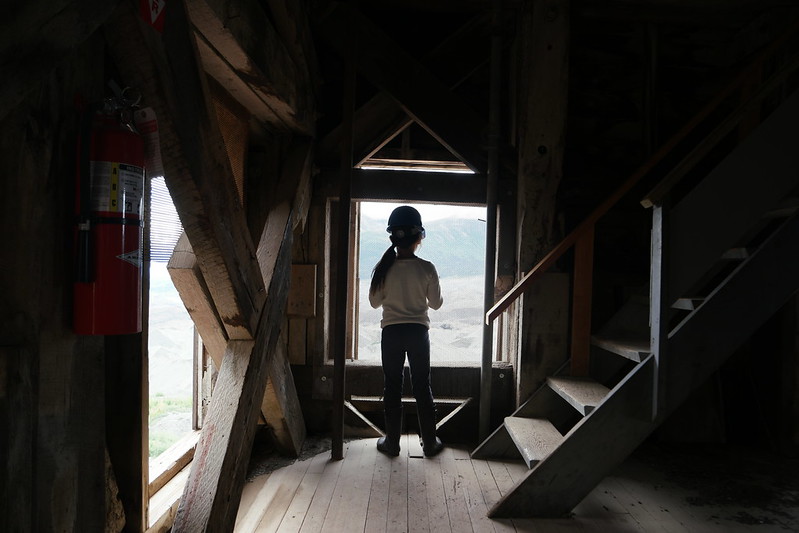
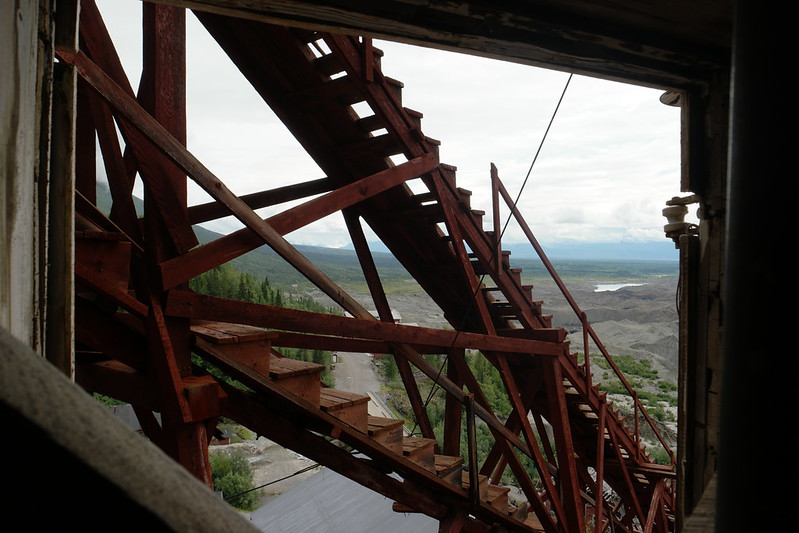
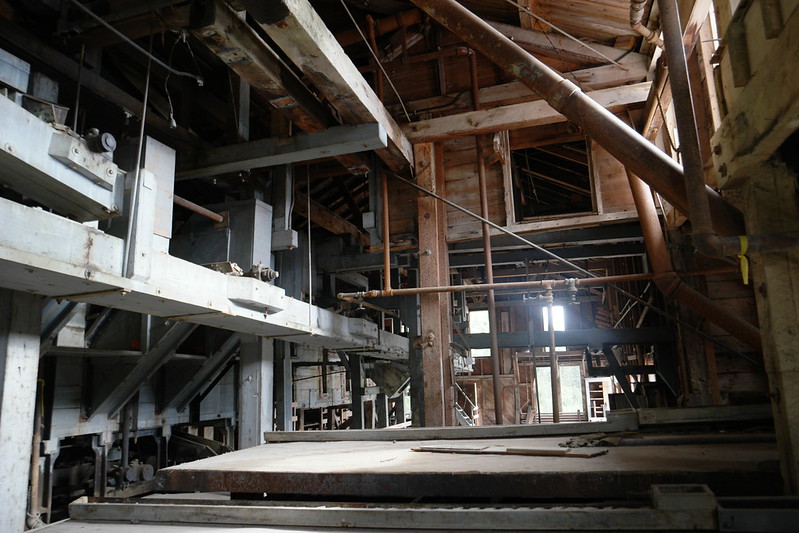
I can’t imagine working in this building when the mill was up and running. The entire building shook during the milling process. There was water dripping everywhere. The floors were all slanted to keep the water from pooling. And the noise. And the cold weather in the winter. It’s crazy to think about.
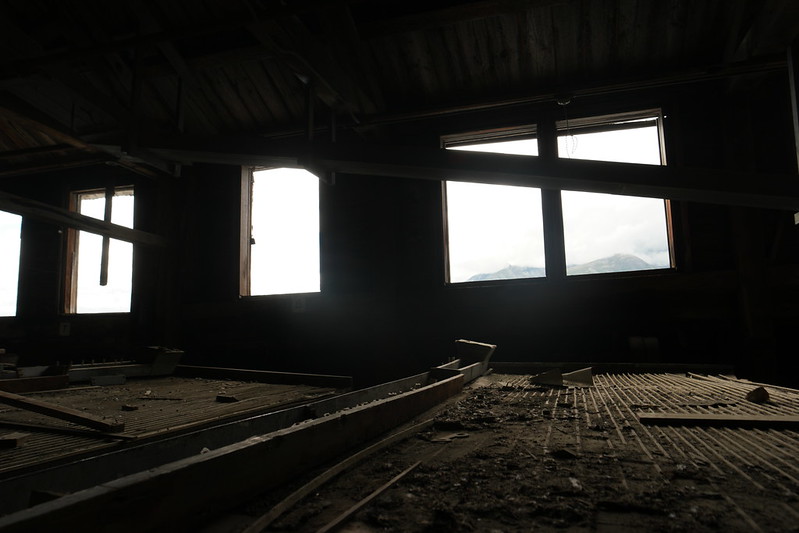
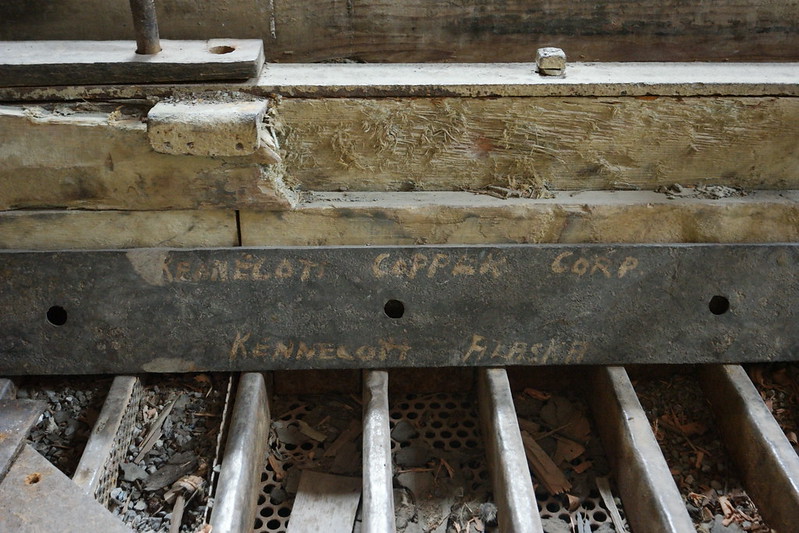
By the end of the tour, the kids were a little over it. Can’t blame them. It’s hard to stand and not touch things for hours.
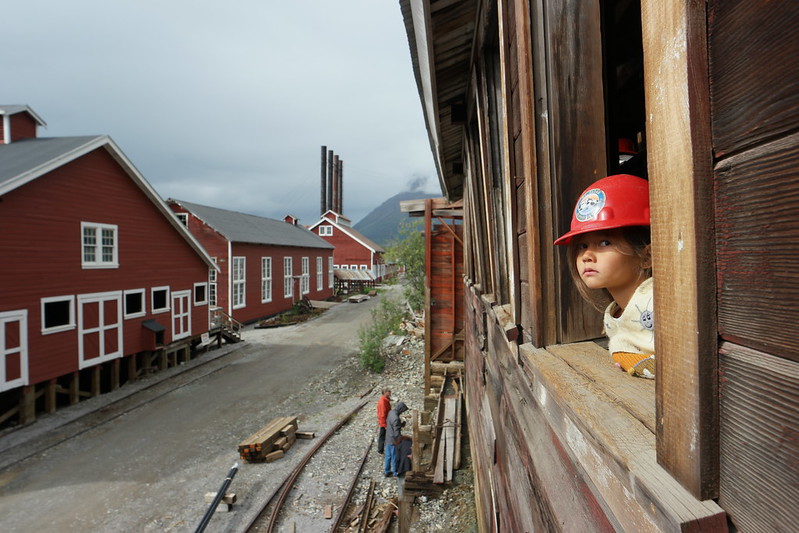
We all made it out safe and sound.
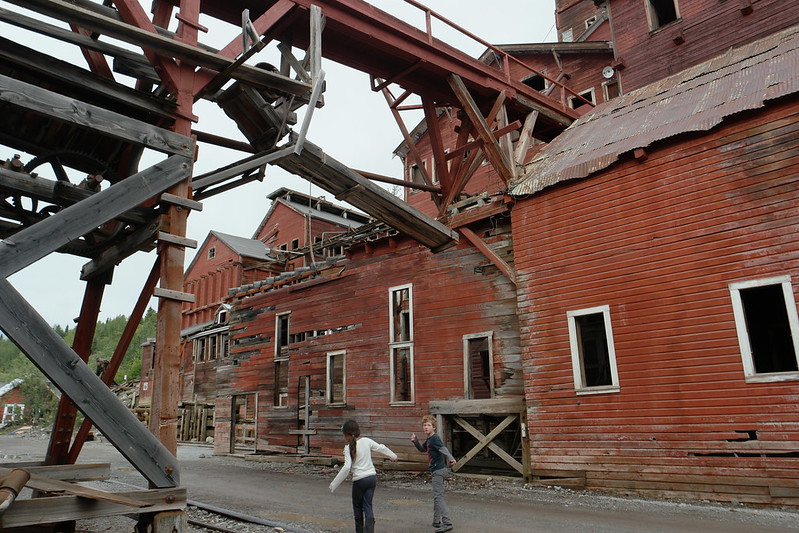
How we all escaped without splinters is beyond me.
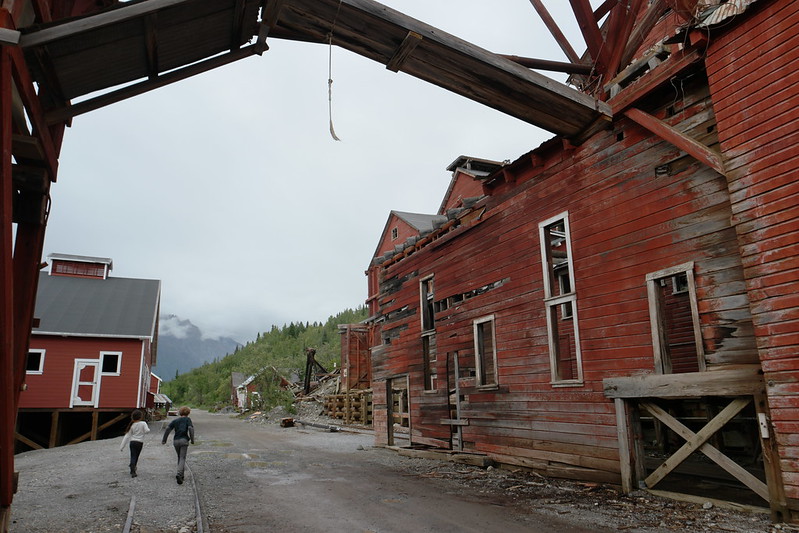
After the mill, we got to take a peek inside the old power house and its massive generators.
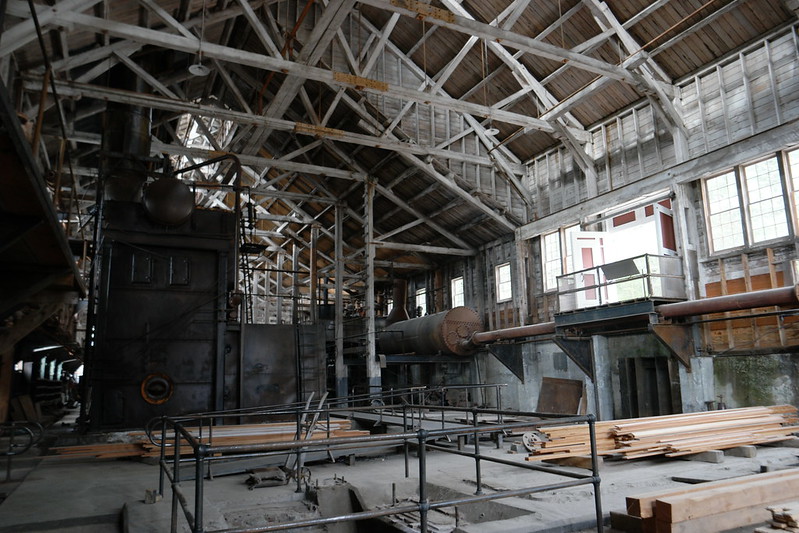
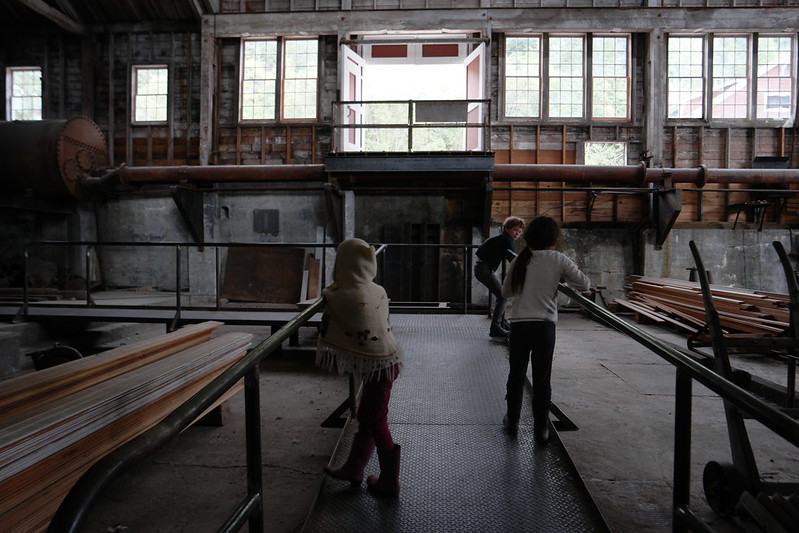
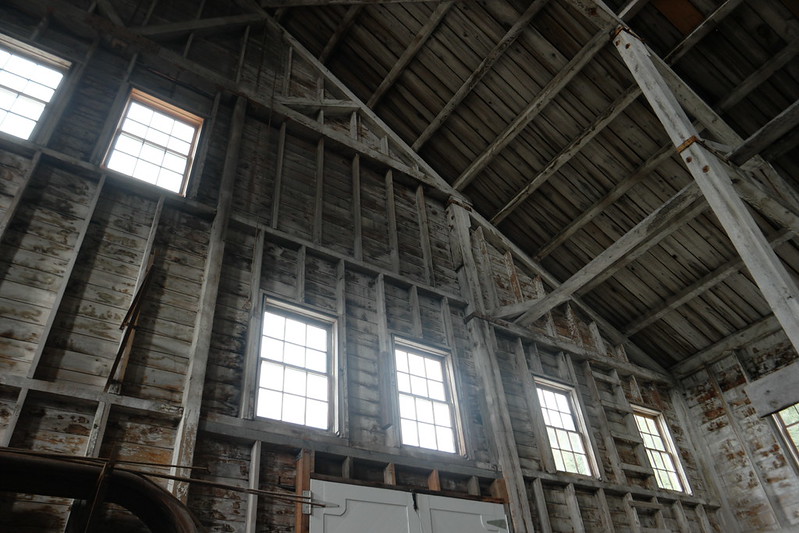
Through the rigorous mining and milling process, Kennecott mines extracted 92% of the copper from the ore before sending it off for smelting.
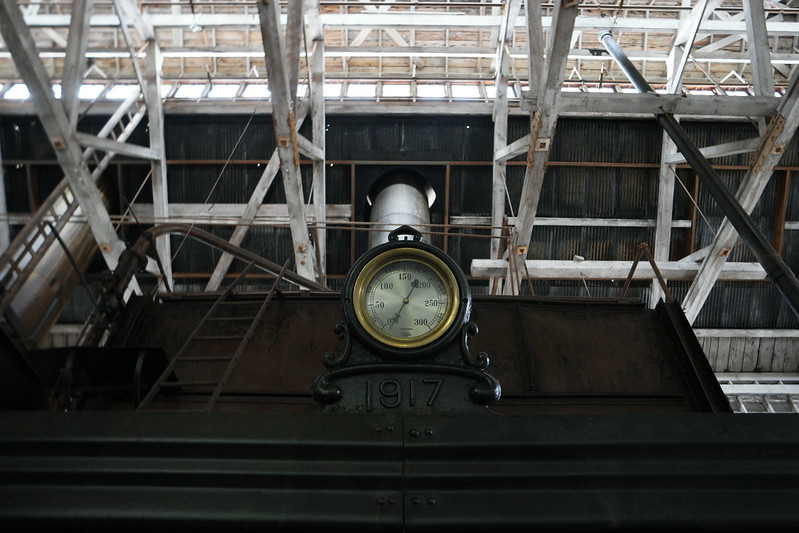
But that wasn’t enough for Stephen Birch, the man responsible for this entire operation. He employed a novel ammonia leaching technique using these tanks and was able to achieve 98% total extraction. Pioneered over 100 years ago, that percentage is still the best any copper mine can do today.
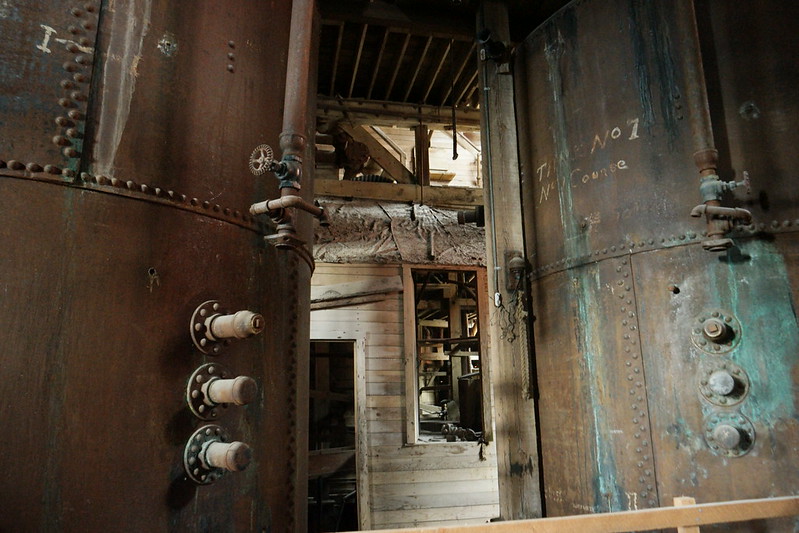
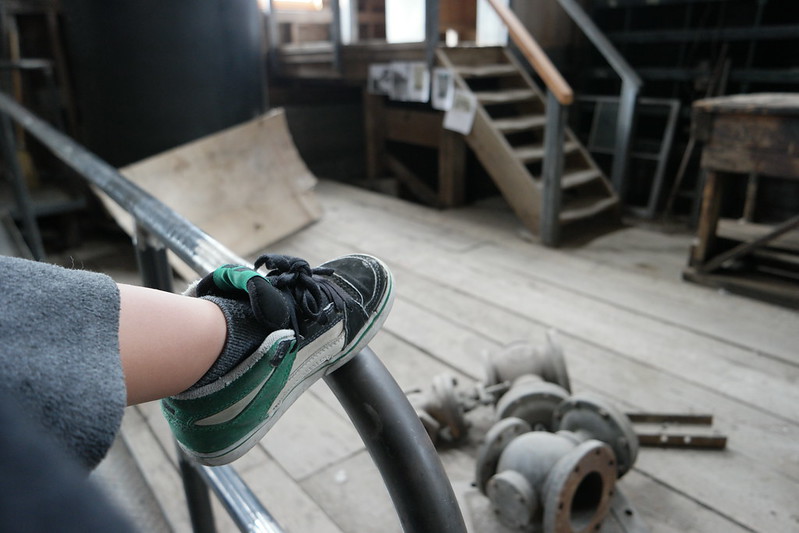
When the tour was complete, the kids earned their well-deserved Junior Range badges at the visitor center in Kennecott. They even got to take tiny piece of copper with them. Score!
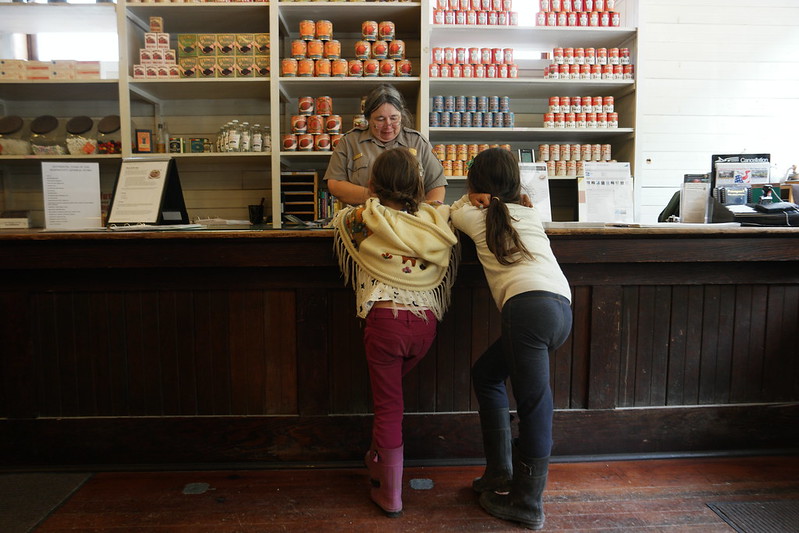
The next day, we walked into town to the local shop to pick up crampons, those spiky things you wear on your feet to prevent you from slipping off of the glacier.
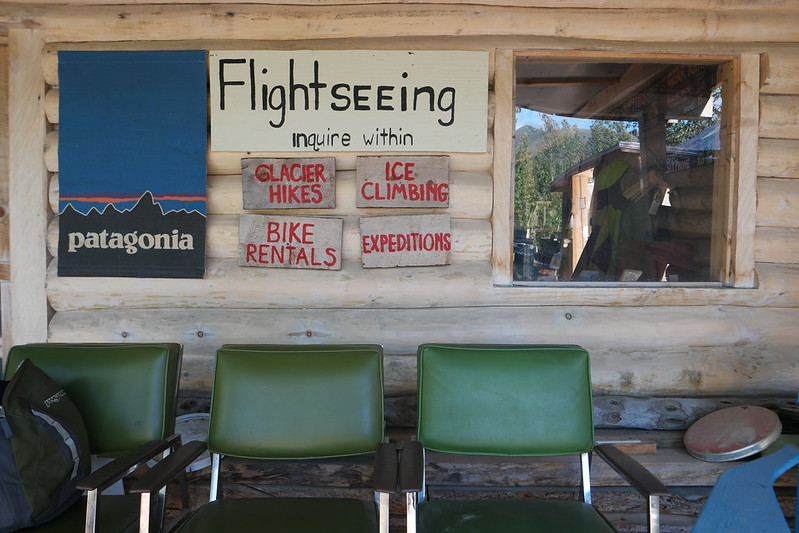
We all rented a pair for ourselves… well, except for Luka. They didn’t have any little dude sizes. Poor kid.
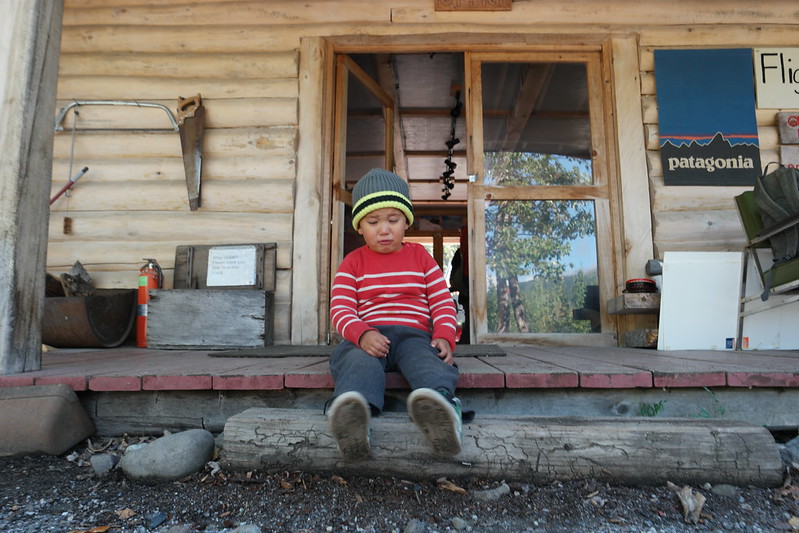
Wrangell-St. Elias National Park & Preserve is the largest national park in the U.S. It’s so massive that it could easily fit Switzerland, Yosemite and Yellowstone within its borders. With a baby strapped to our back, a can of bear spray in hand and a few sets of rental crampons, we set out to walk atop Root Glacier.
The hike to the glacier was a pretty decent one for us. It’s 4 miles round trip from town… not including the walk on the glacier itself and from our campground. I’m guessing it was at least a 6 mile day.
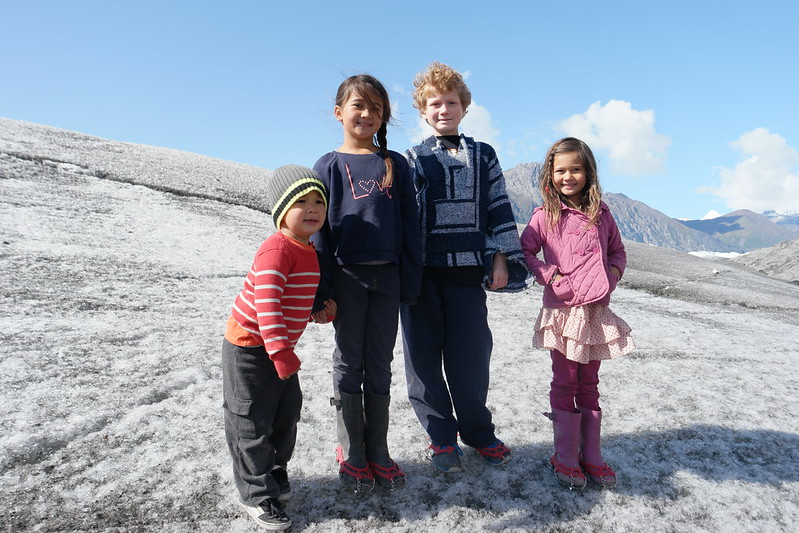
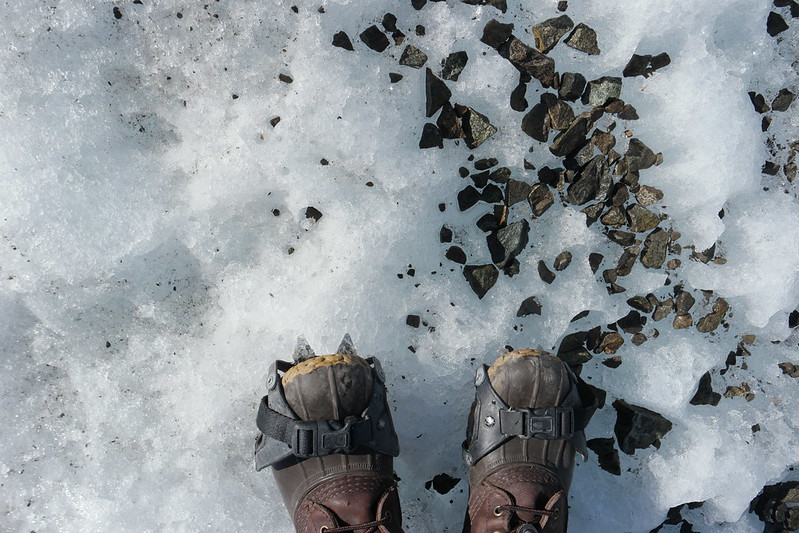
After a two mile hike to the foot of the glacier, the girls put a set of crampons over their rain boots and traversed the glacier for an additional mile.
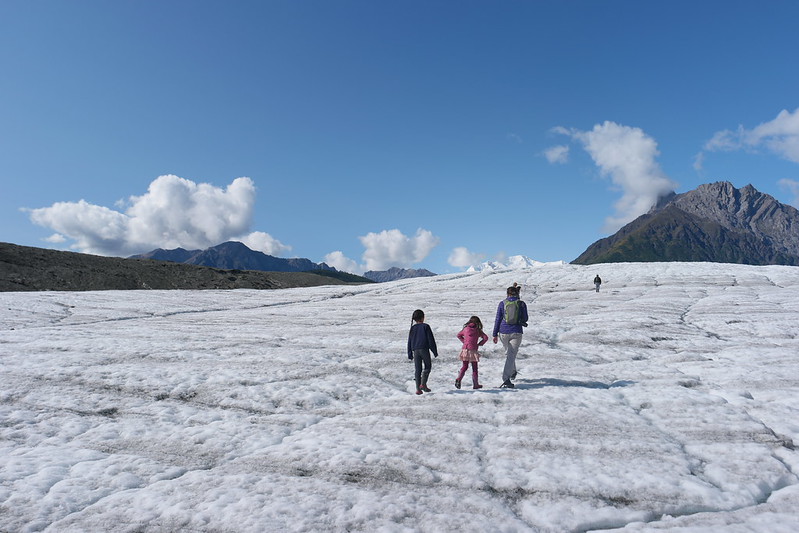
Luka got to walk on the foot of the glacier. The dirt mixed with ice made manageable without crampons.
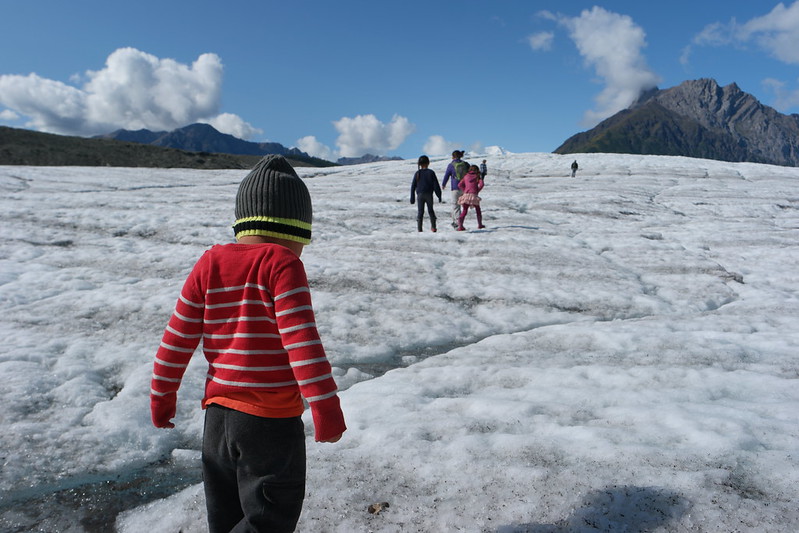
And once the dirt disappeared, Luka insisted on getting a closer look at this blue ice.
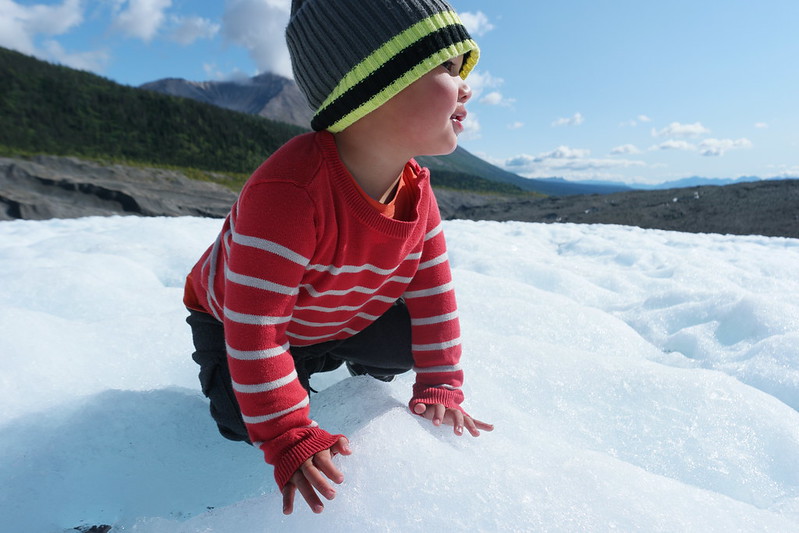
Gimme some of that blue ice!
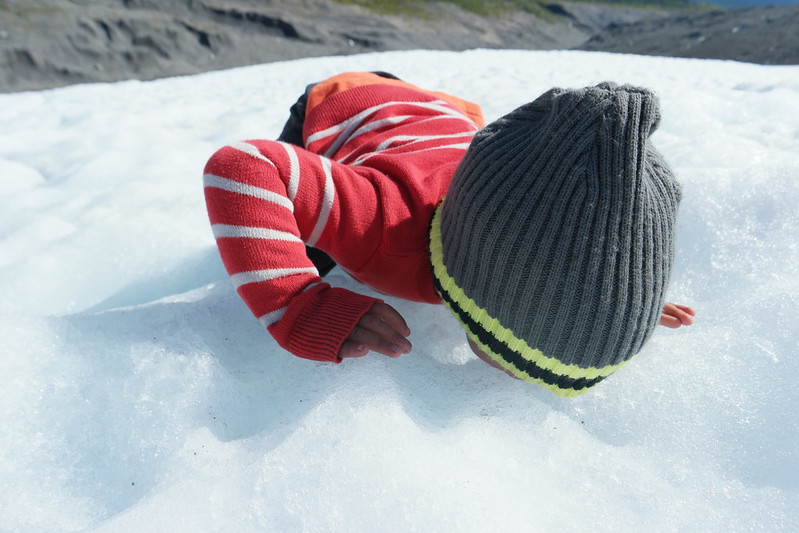
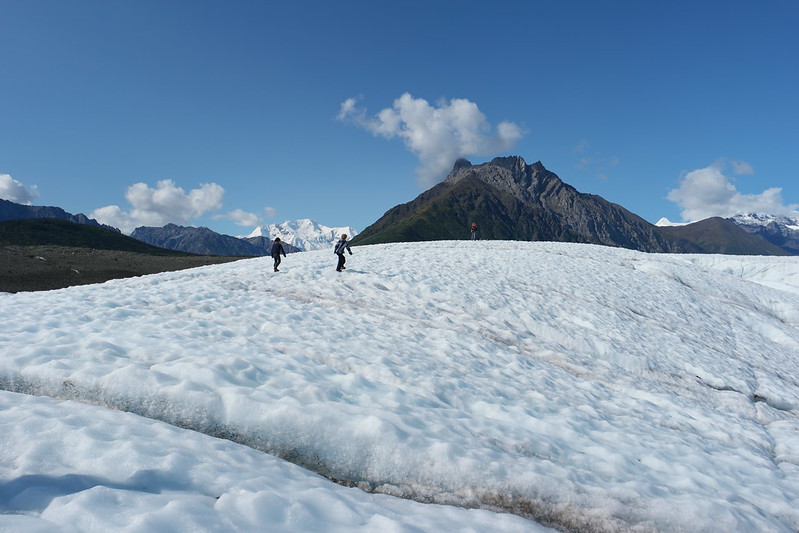
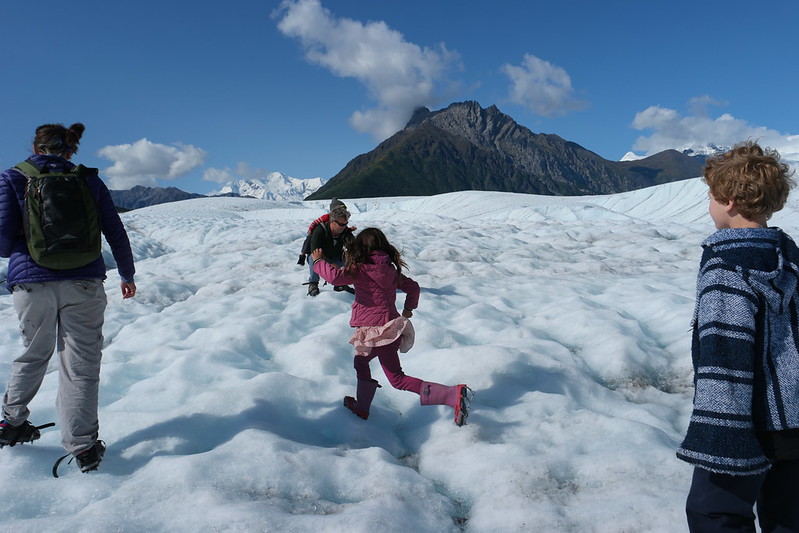
A million memories made with the Bodeswell crew. They are one awesome family that we are so lucky to have befriended in Alaska.
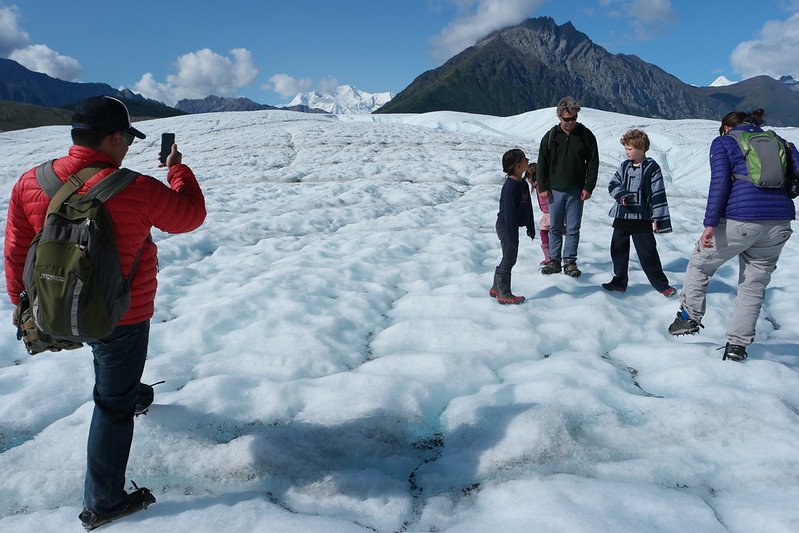
Once atop, no one fell, no one complained, but all kids did get down on hands and knees to drink melted water that was once frozen who knows how long ago.
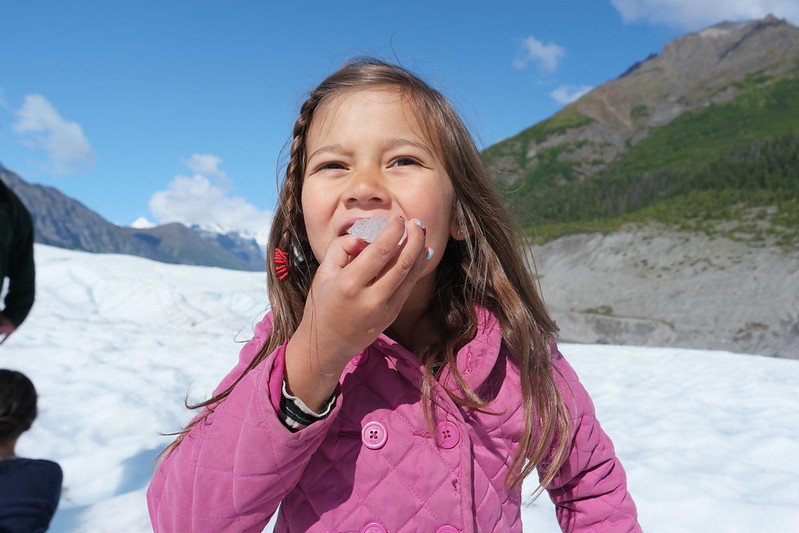
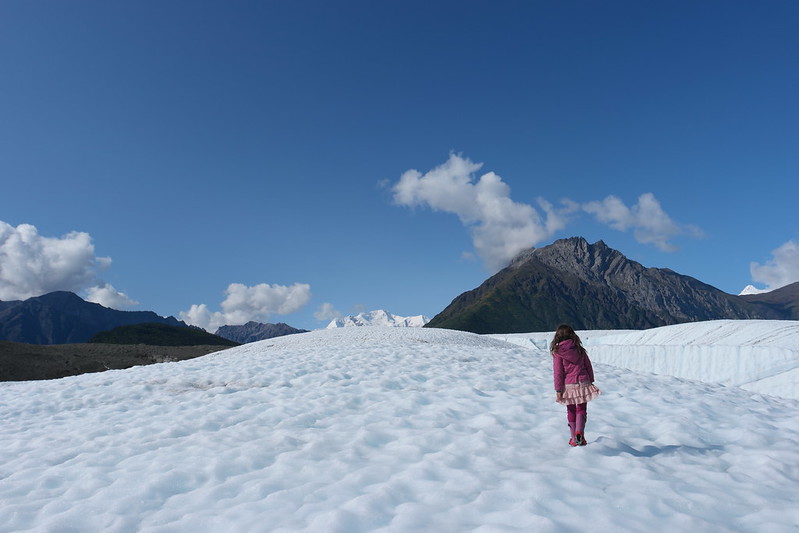
Stomp your foot again, Mama. I need more ice please.
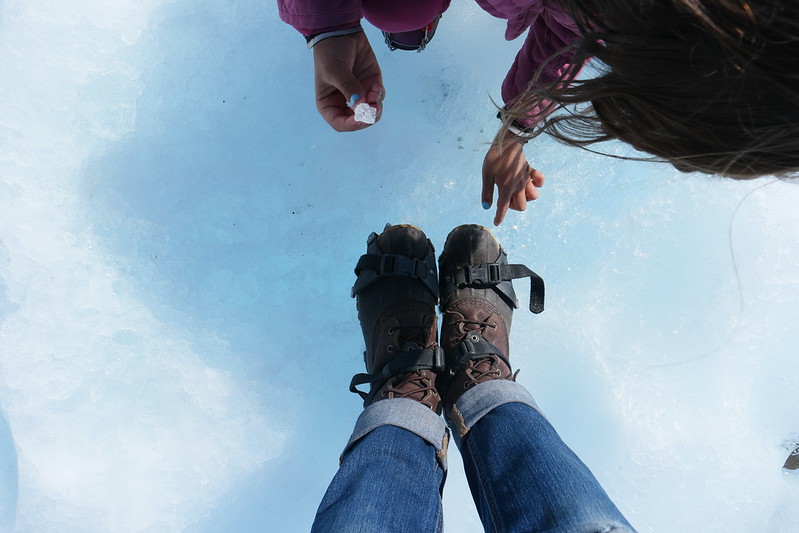
Yummy.
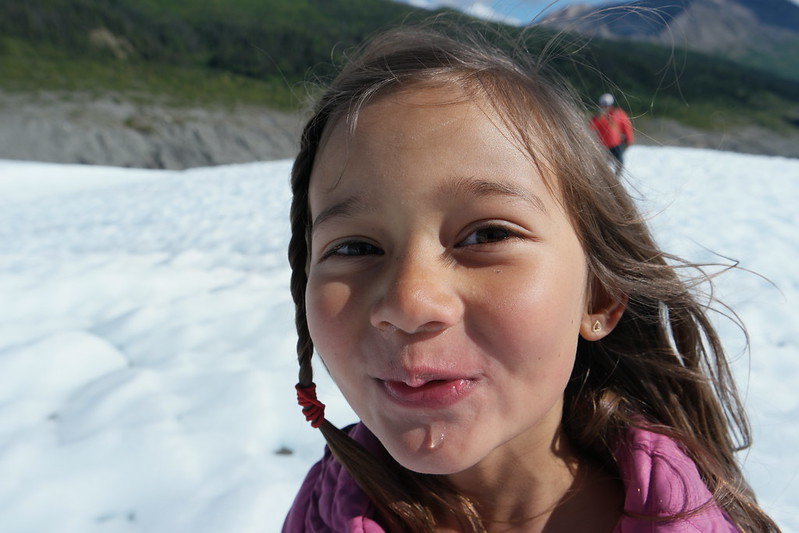
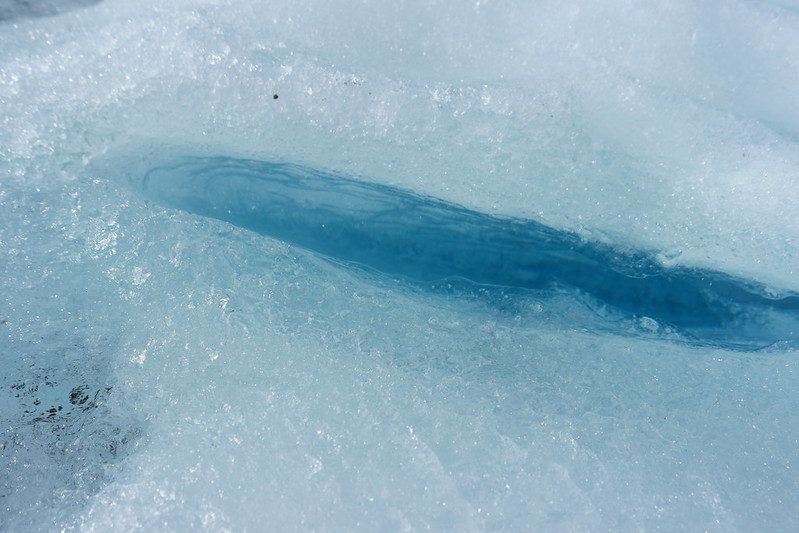
There was no way we would have guessed that the fastest internet connection in all the places we drove thru in Alaska would be right here. On top of a freakin’ glacier!! Haha.
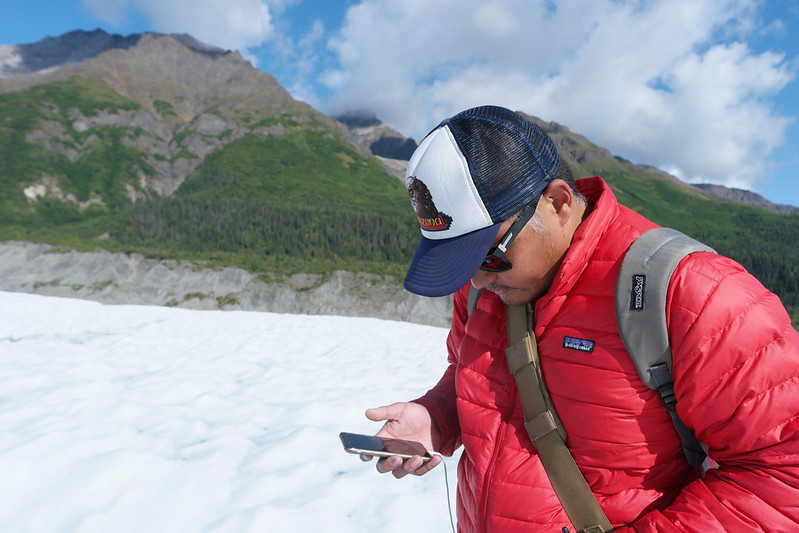
Dan opened his Periscope app and broadcasted a few minutes with zero issues.
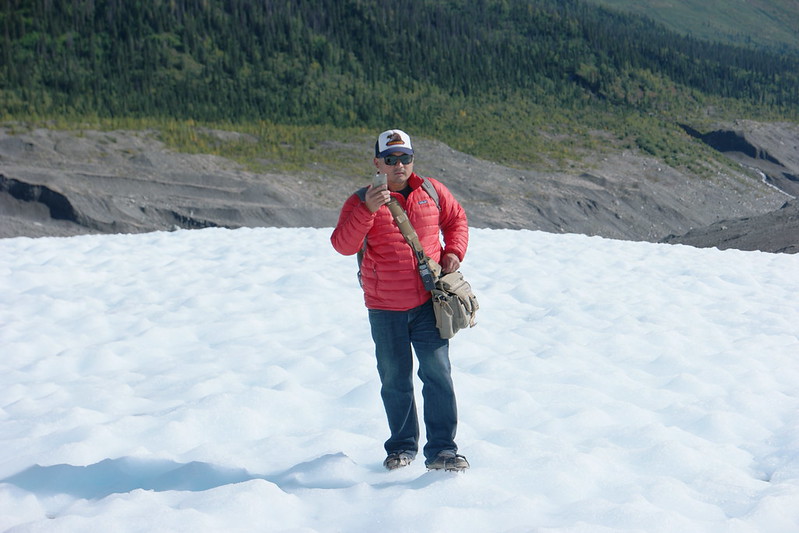
Having the kids pose on the glacier with the sun reflecting off of the clean ice into their eyes wasn’t working too well.
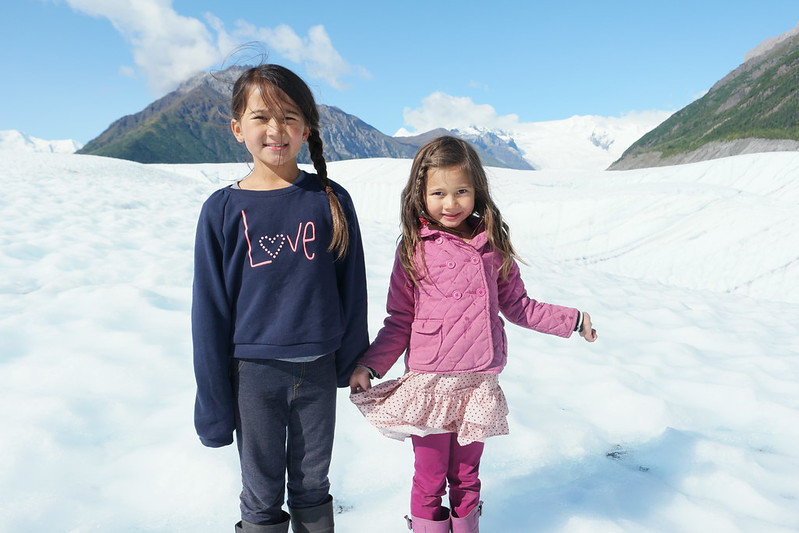
Ours eyes are burning!
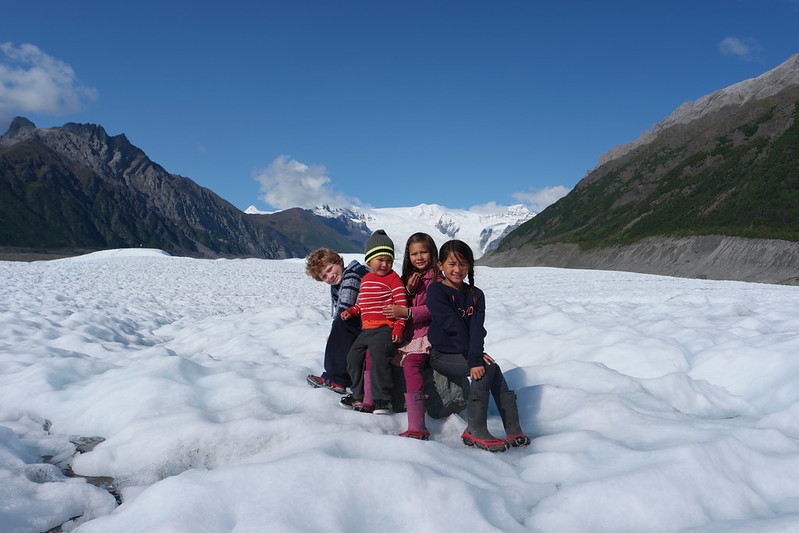
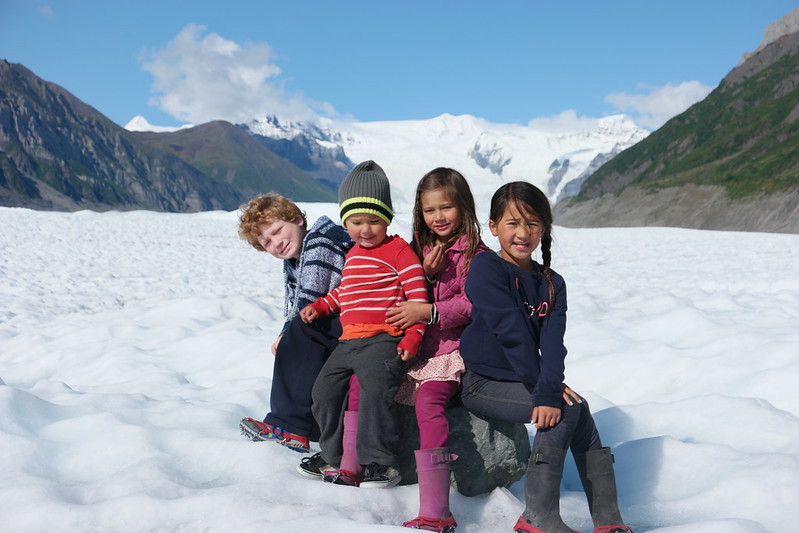
Hey, dudes? Instead of ditching the mamas and kids, how about you help out?!?!
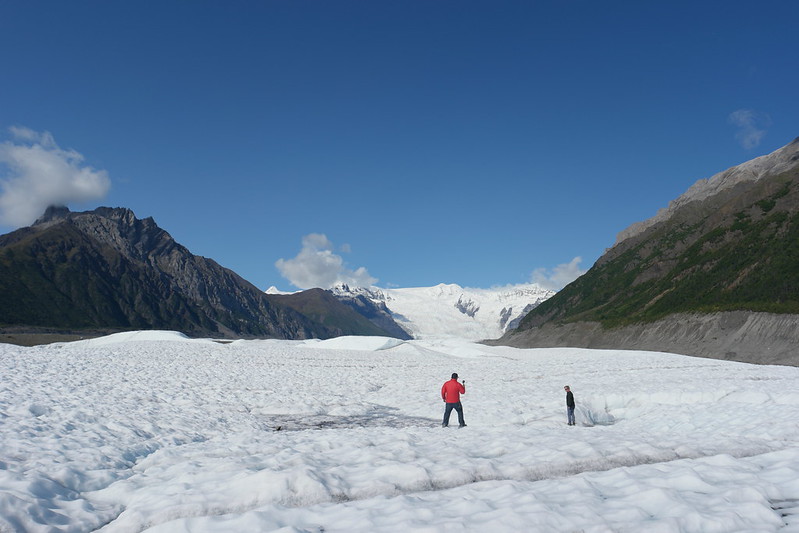
That’s more like it! Thanks for giving Luka a ride, Jason.
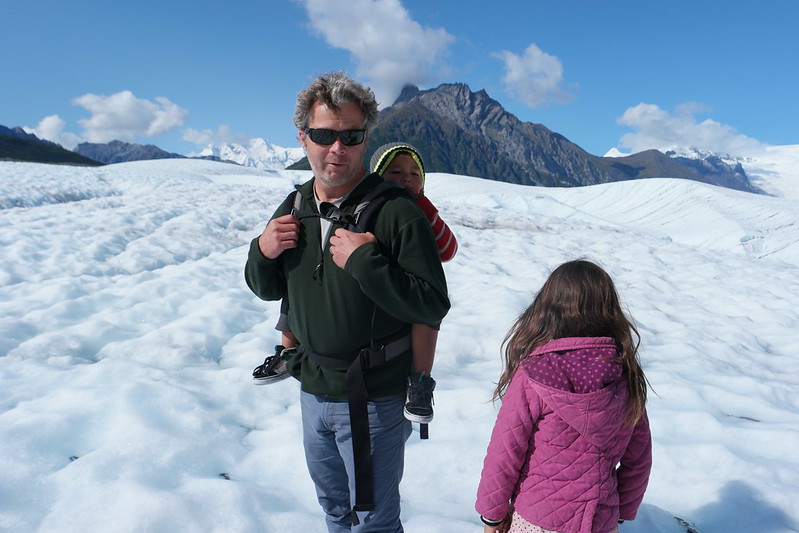
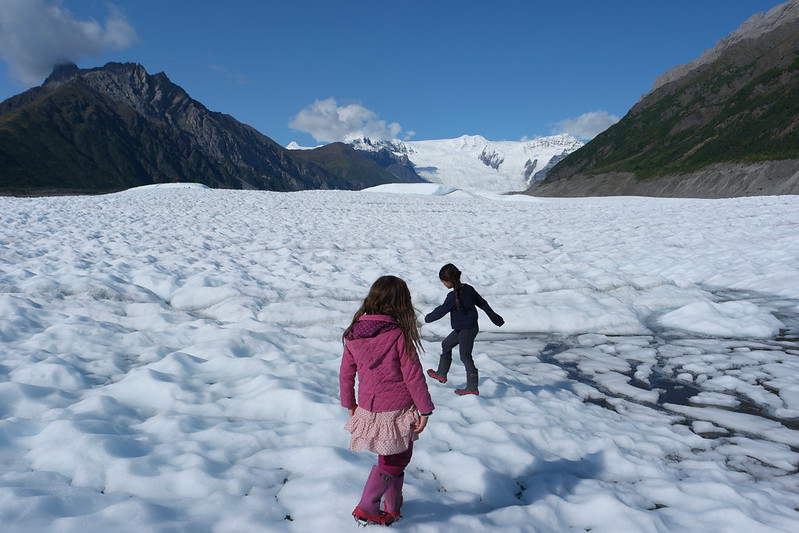
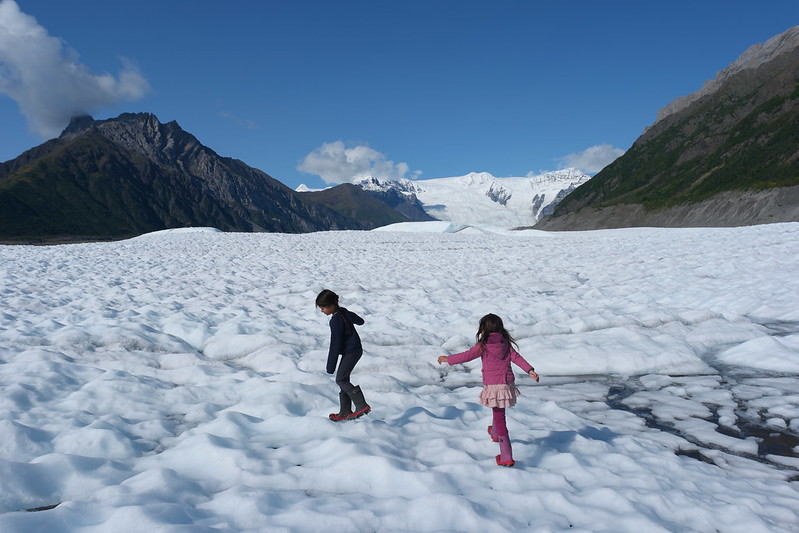
Hey, Luka. Put those delicious Juanita’s chips down so we can take a family photo.
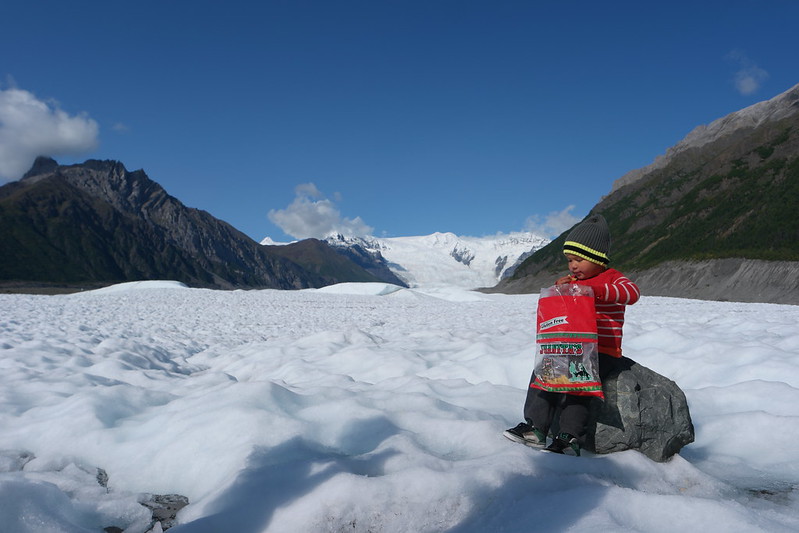
Cheese!
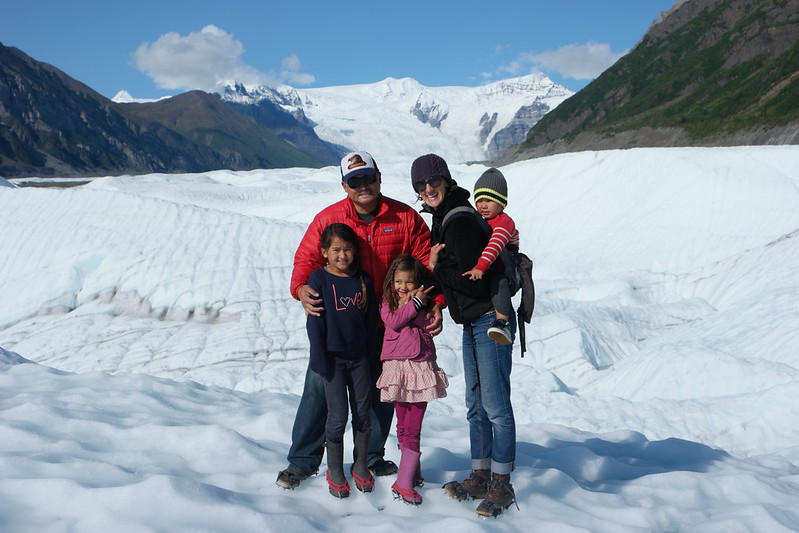
Look at us. Feeling all bad ass that we hiked all over this glacier.

And then we saw this guy. Oh great. We aren’t really bad ass after all! Hahahaha.
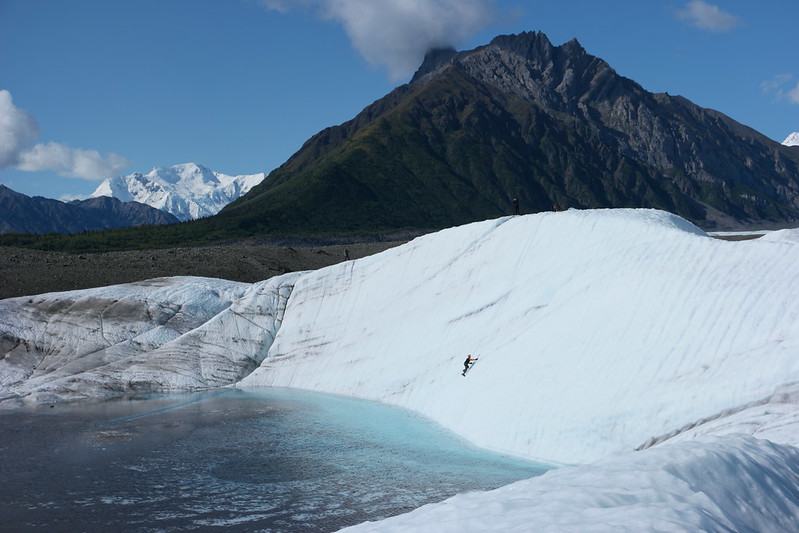
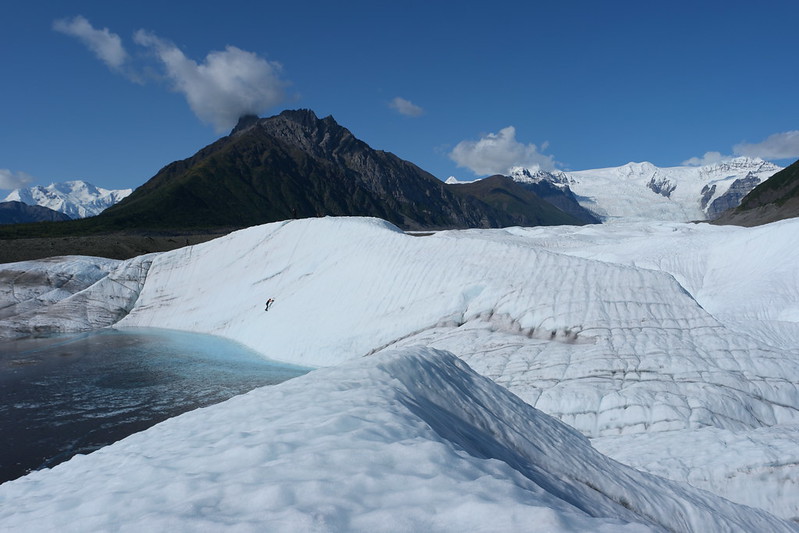
As soon as we got off the glacier to take our crampons off, Luka got to take a spin with Mila’s crampons. They were super loose but that wasn’t going to stop him doing this too.
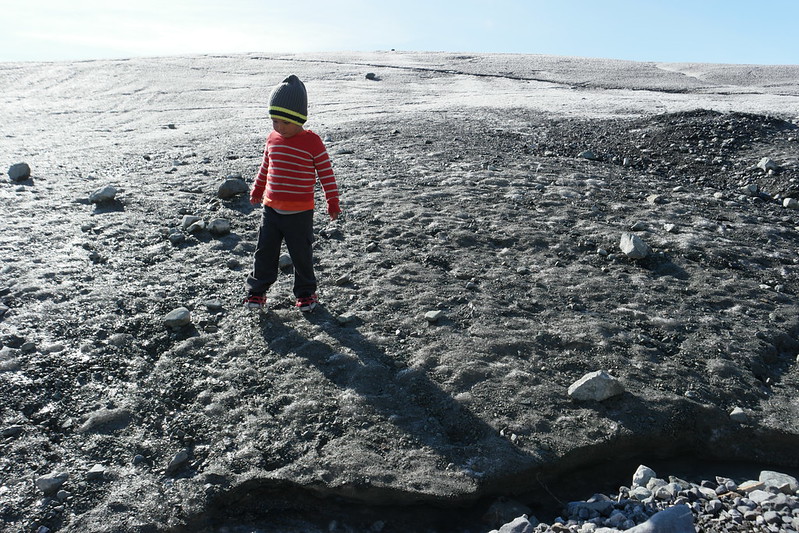
Months after this moment, he is STILL talking about how we didn’t get his own crampons.
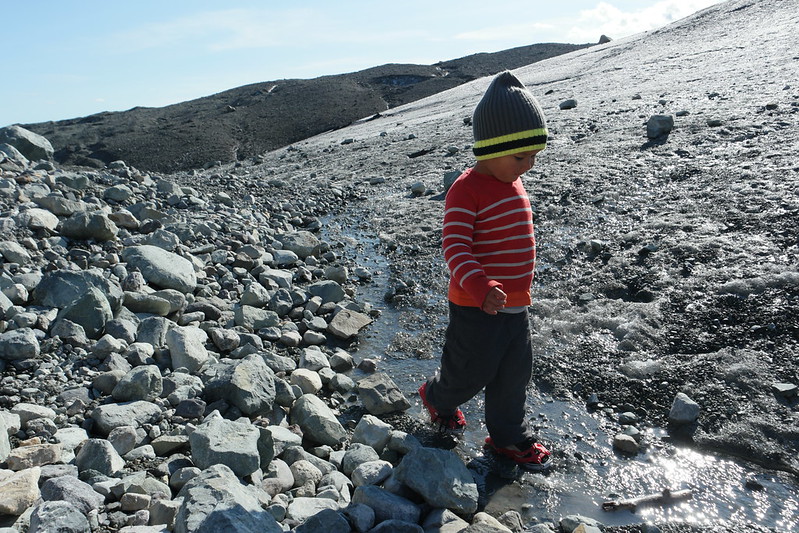
The walk up the hill to get back to the main trail was a little tough to back carry Luka. He was more than happy to army crawl up a loose gravel hill all by himself.
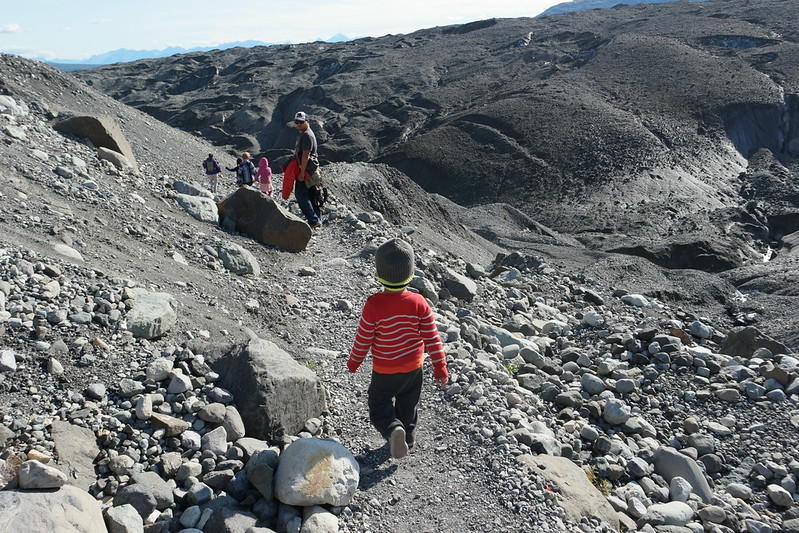
Our legs were so tired after hiking atop the glacier. Keeping the rental crampons on tight was a little tricky and exerted a little more energy than regular hiking.
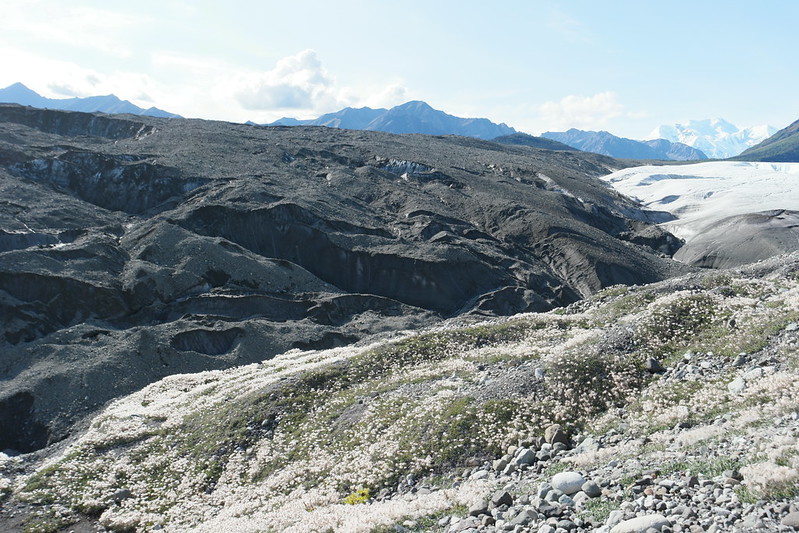
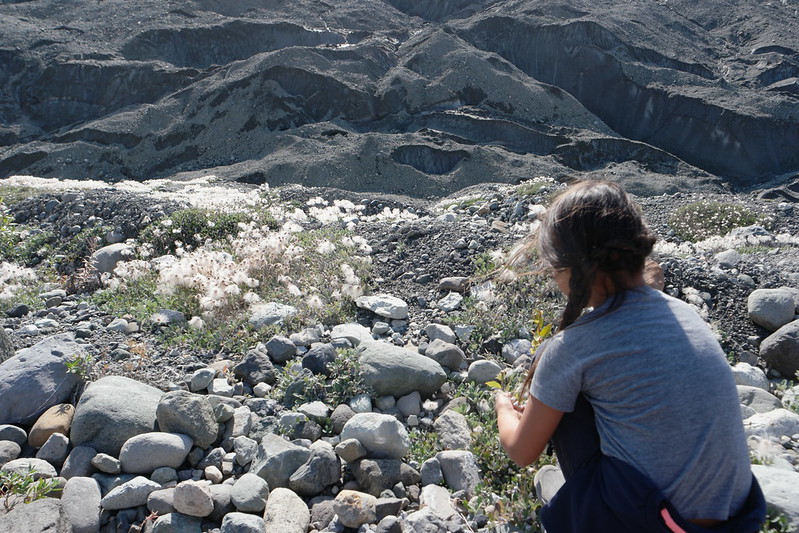
The older kids didn’t complain much. They spent most of the hike chit chatting about adding glaciers and mill buildings to their MineCraft worlds.
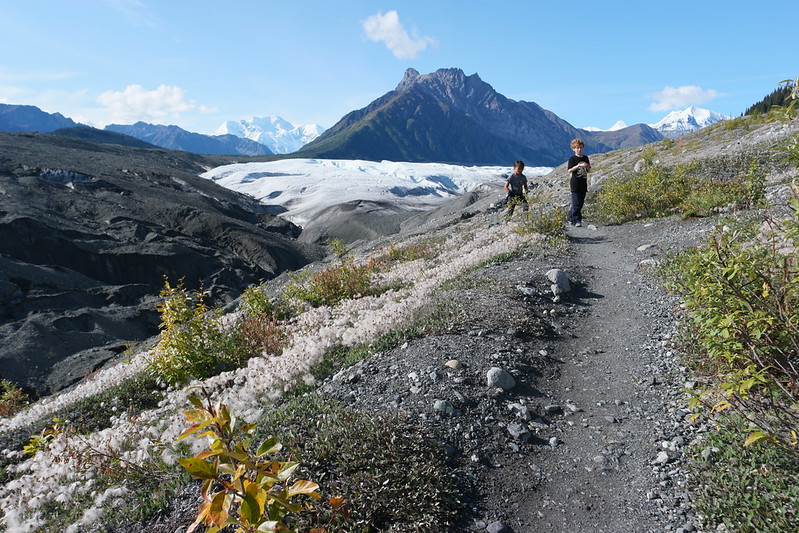
Dan got to carry Luka on the way back. That kid is so solid and pushing the limits of that carrier but I’m not sure how we could do these hikes, especially around his nap time, without it.
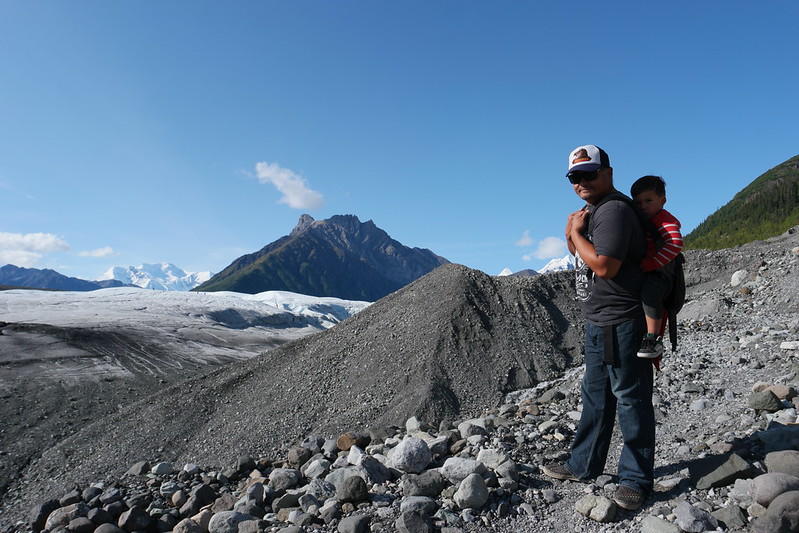
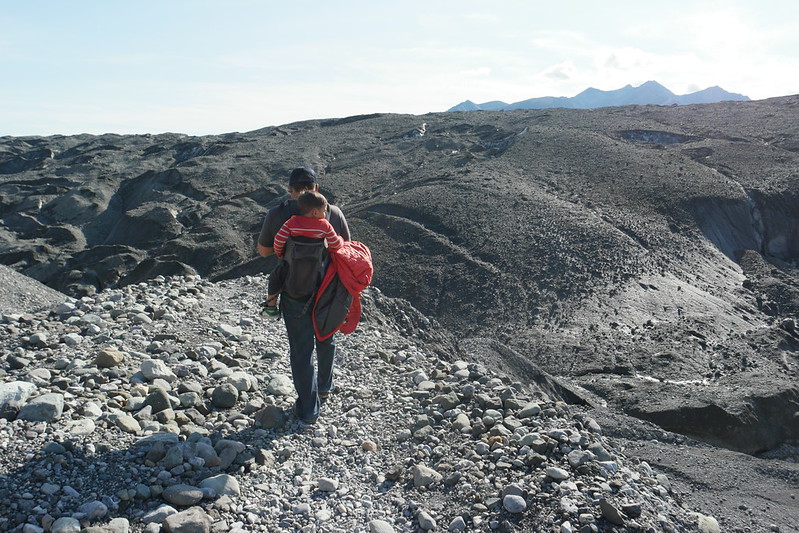
All the walking we did today to get to the glacier from our campsite totaled about 6 miles. We are happy, exhausted and dehydrated. A night out at the Golden Saloon in the little town of McCarthy was in order with our hiking buddies Bodeswell. An overpriced pitcher of PBR never tasted so good.
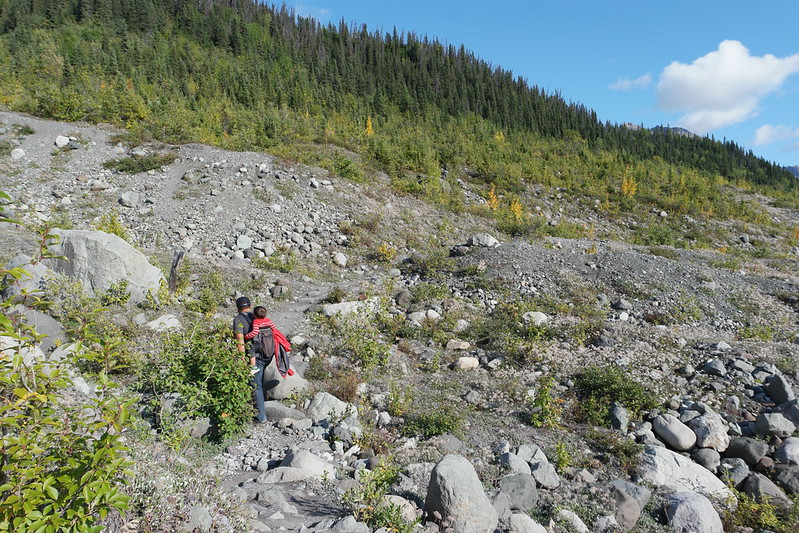
Thanks for reading,
Marlene
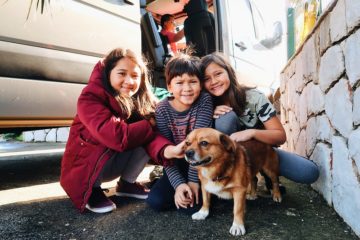
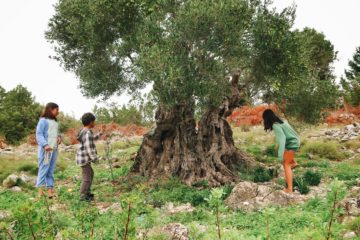
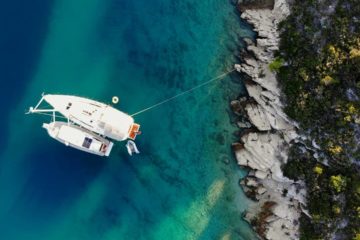
0 Comments